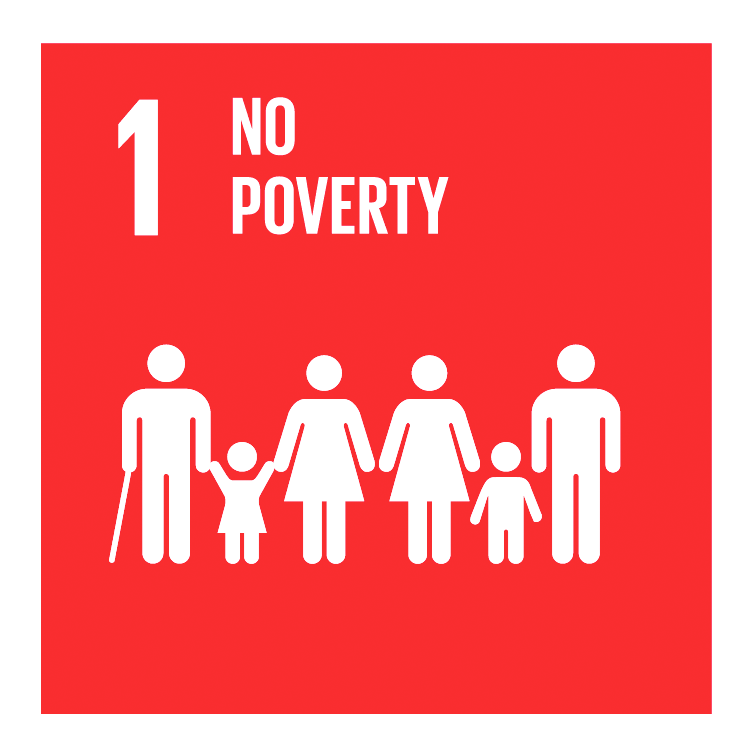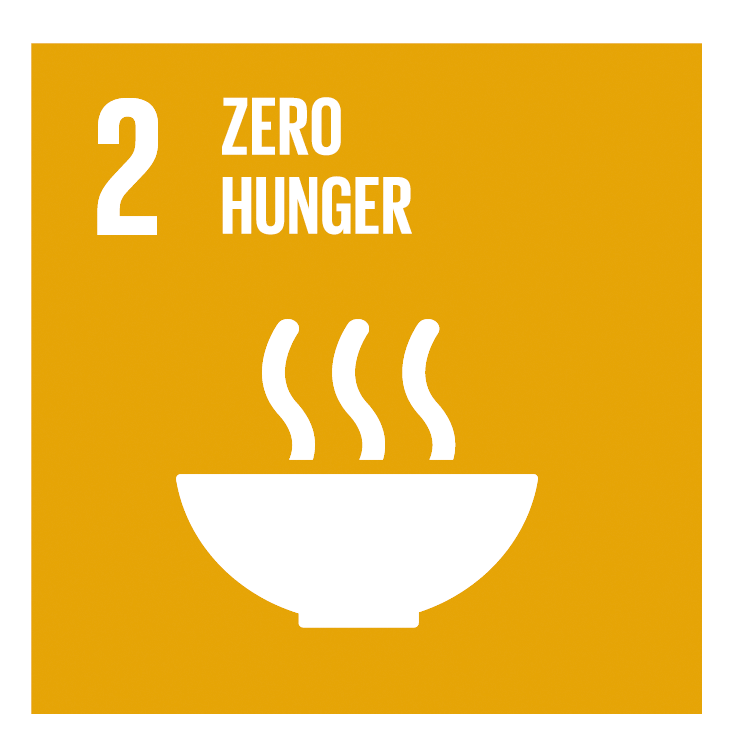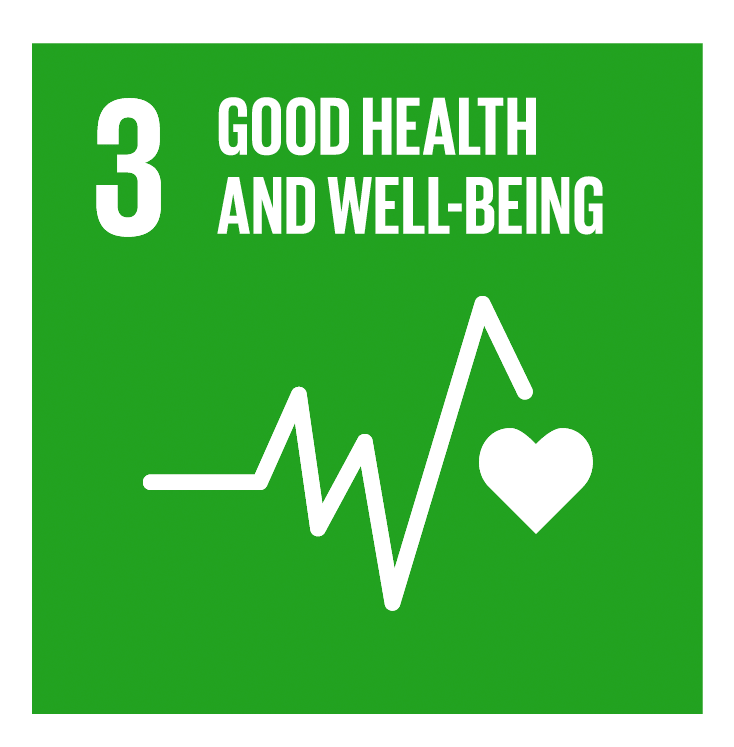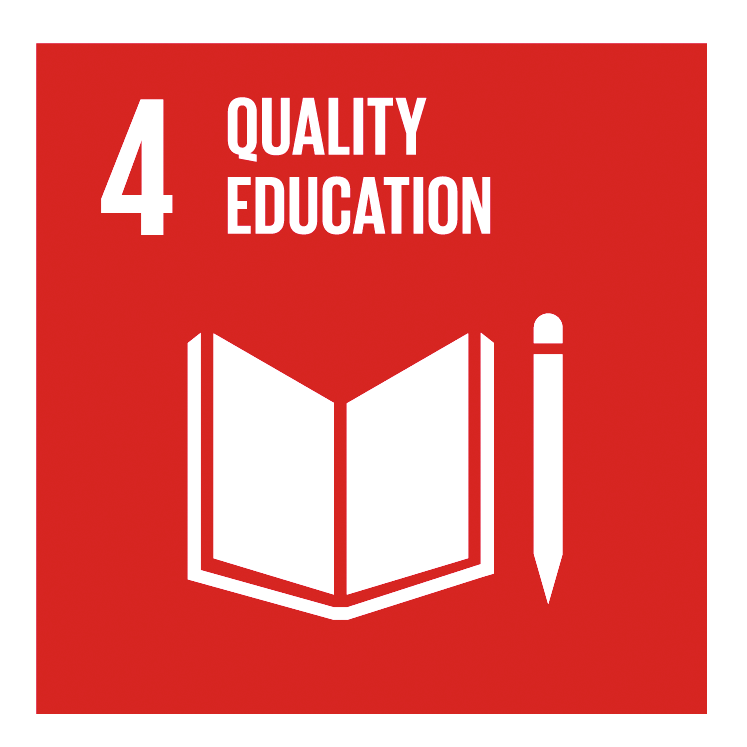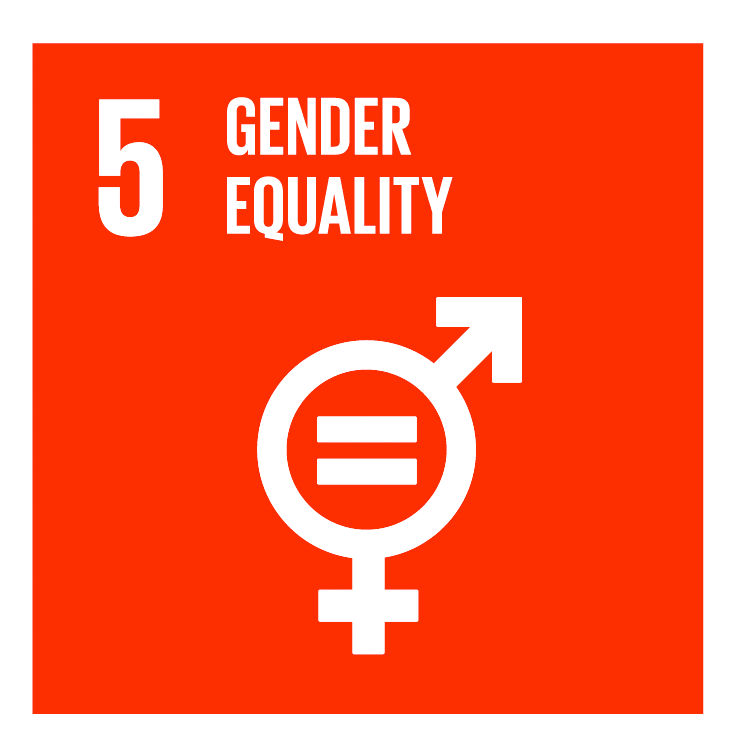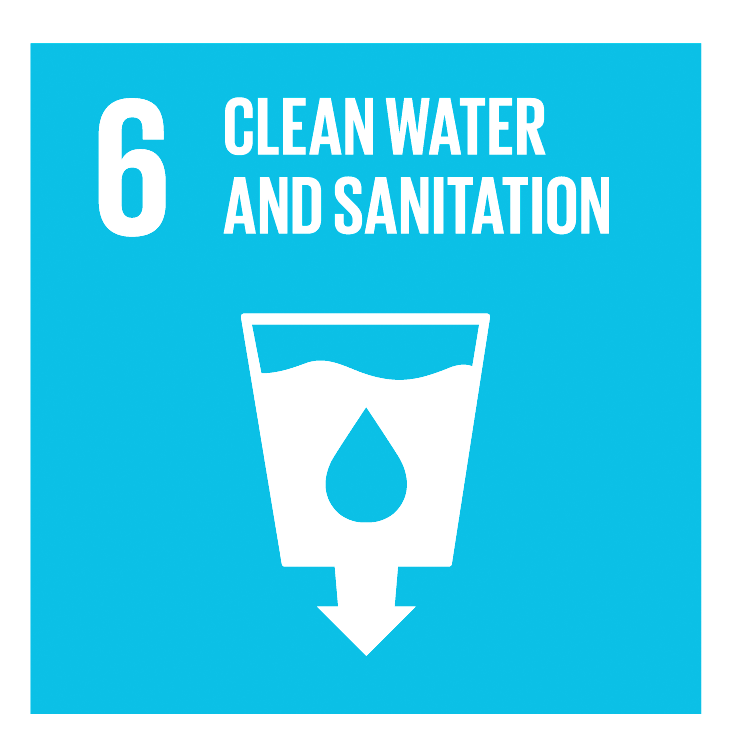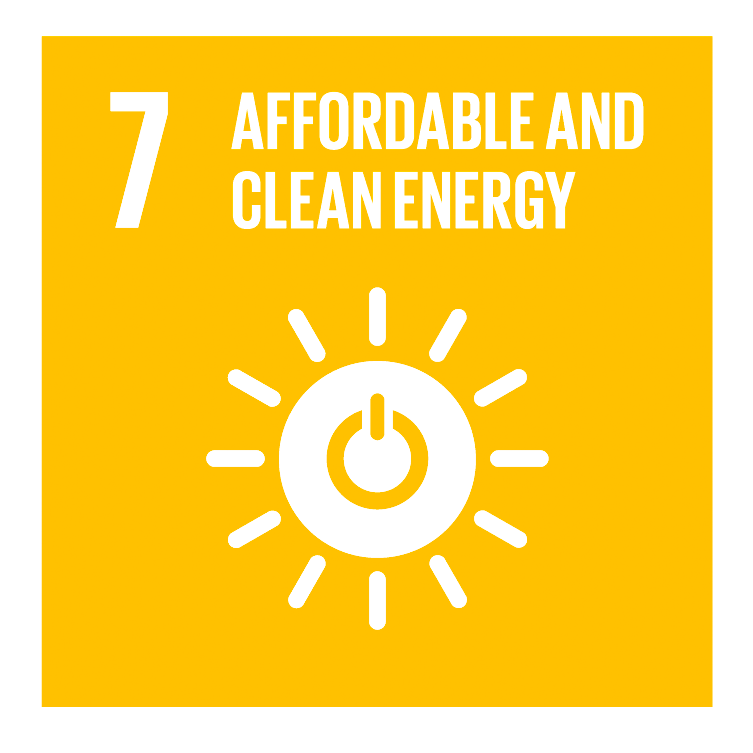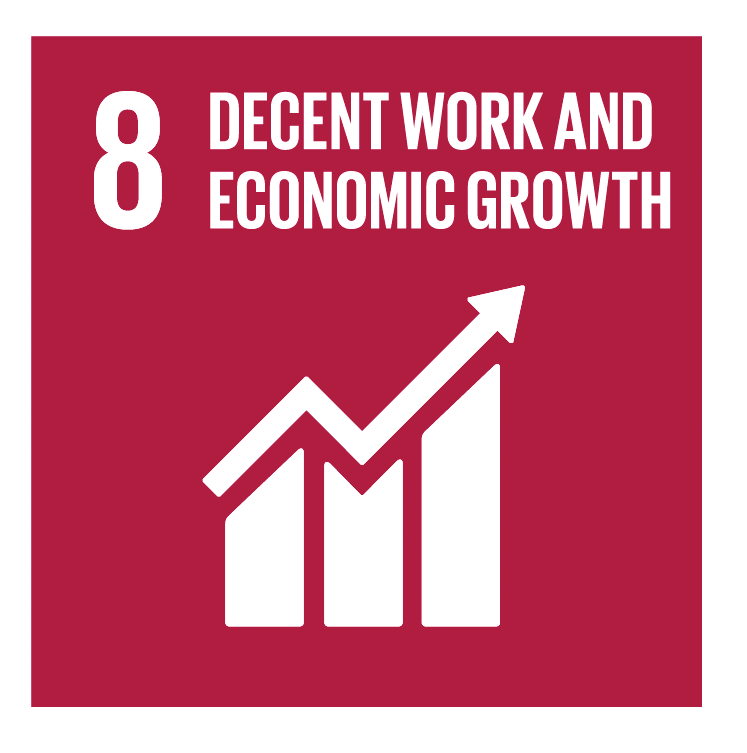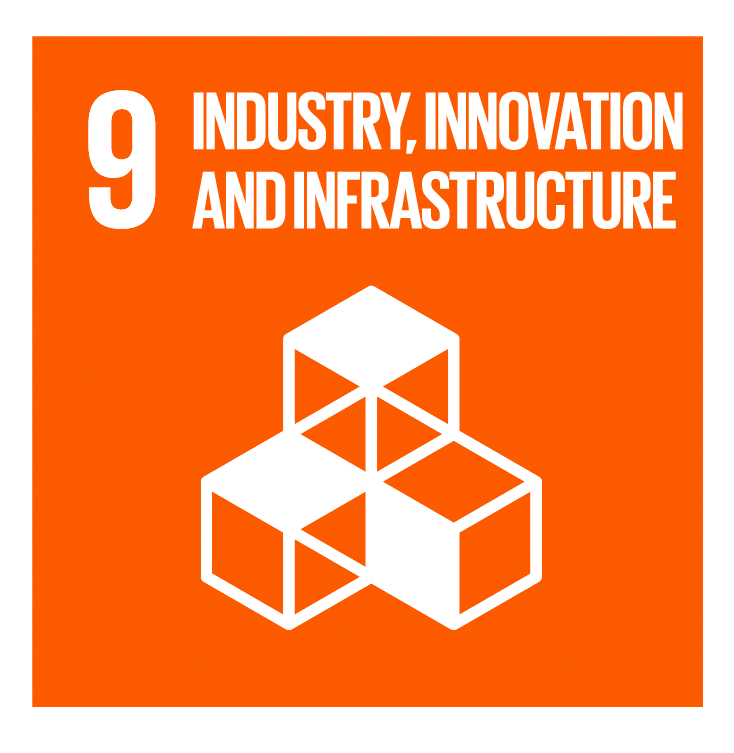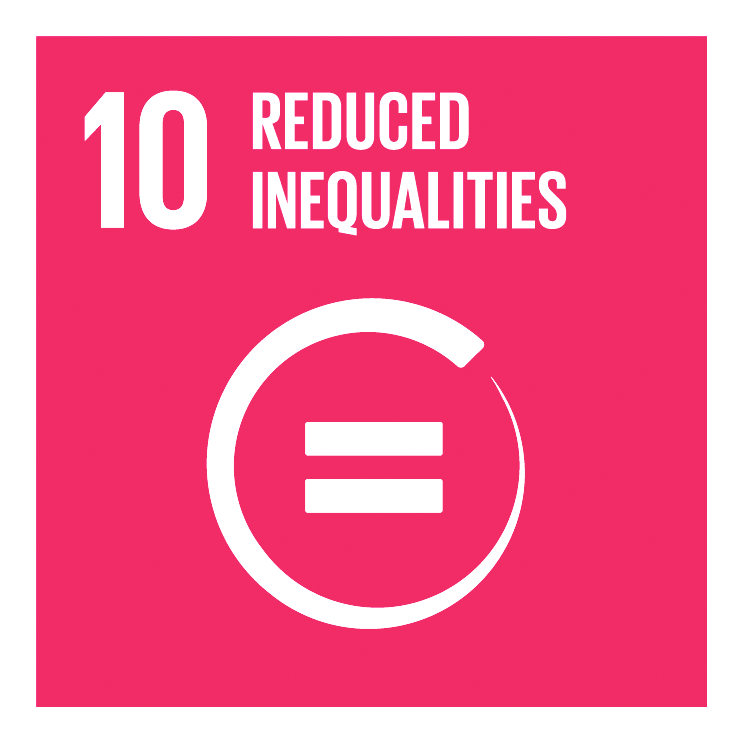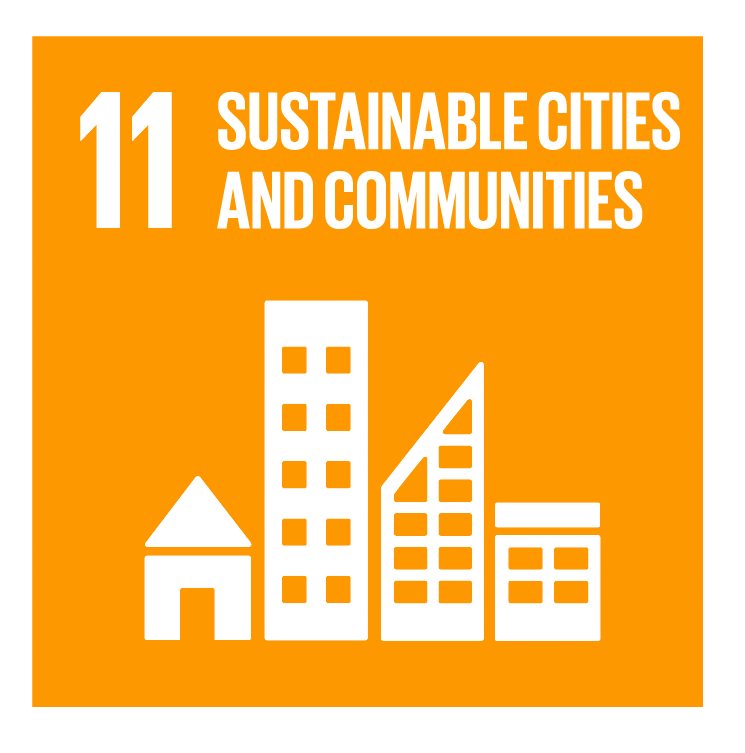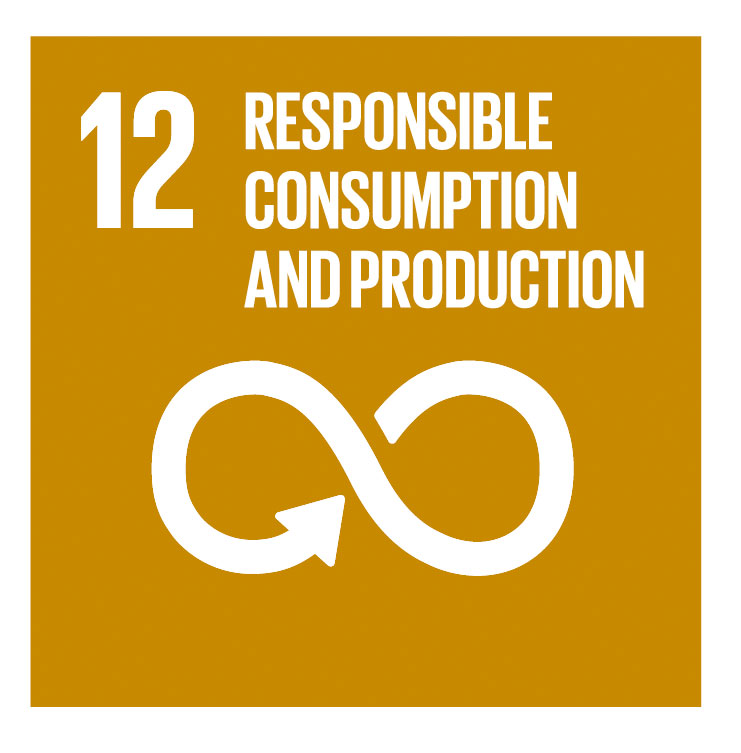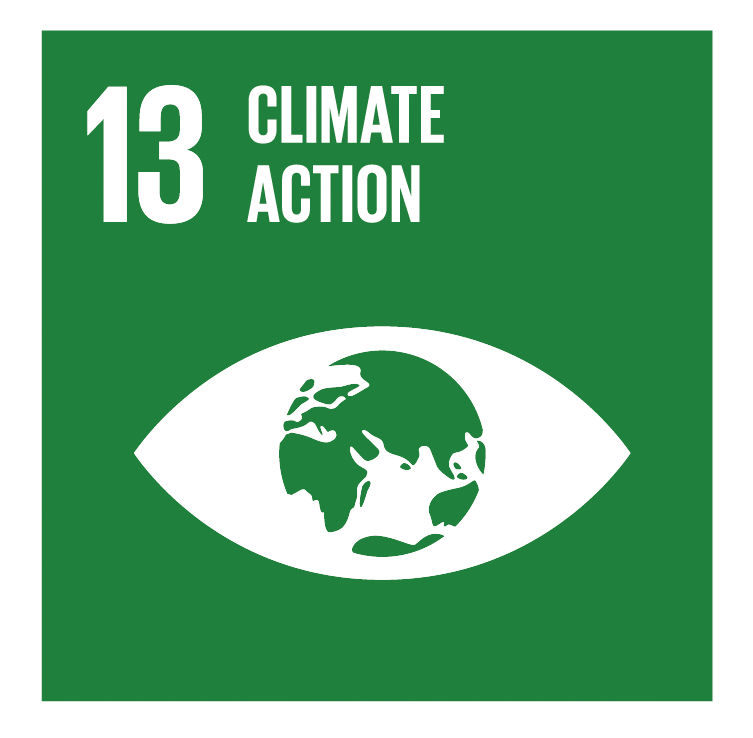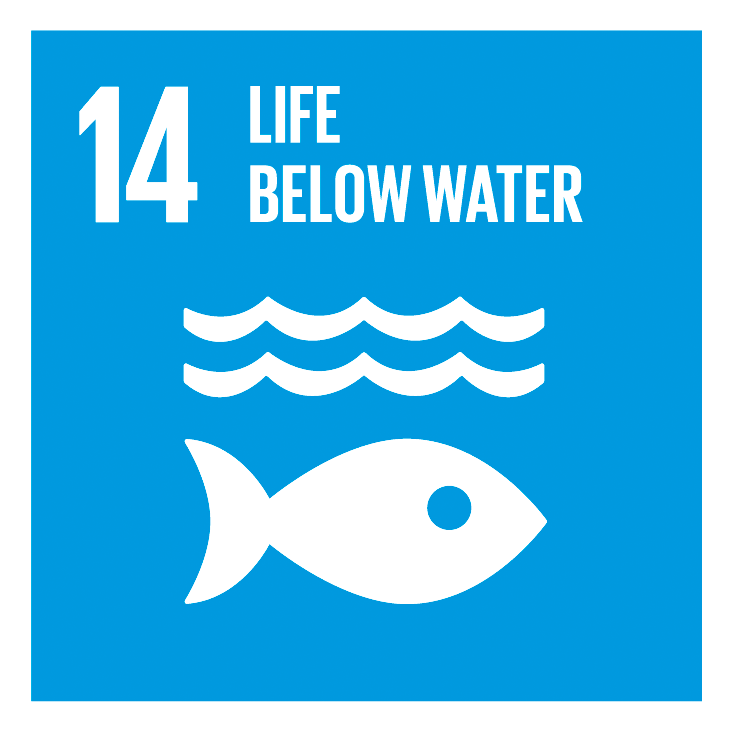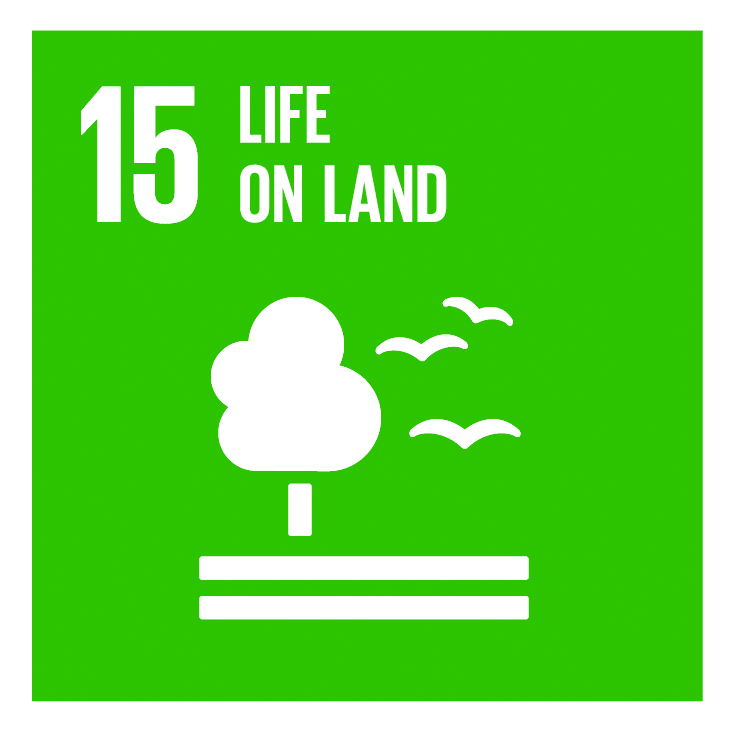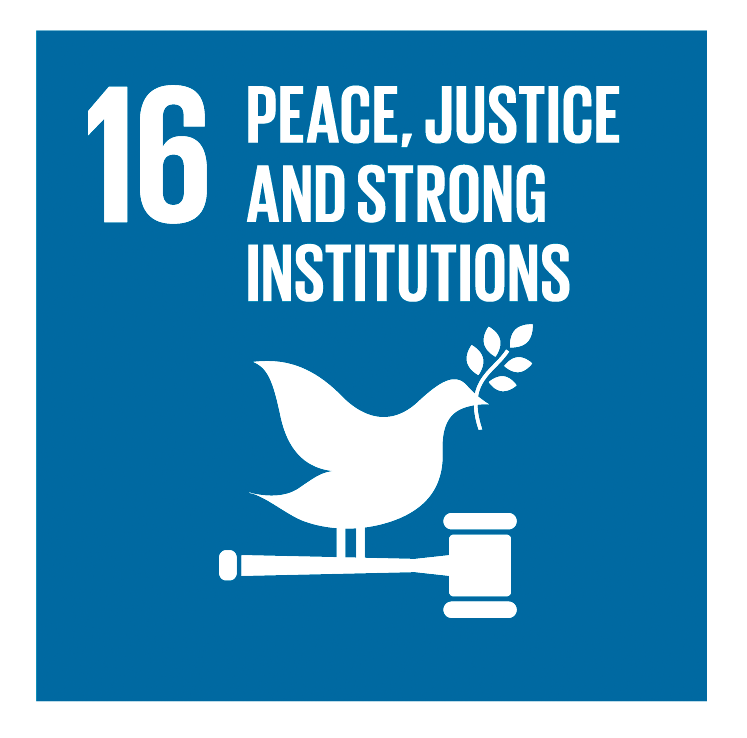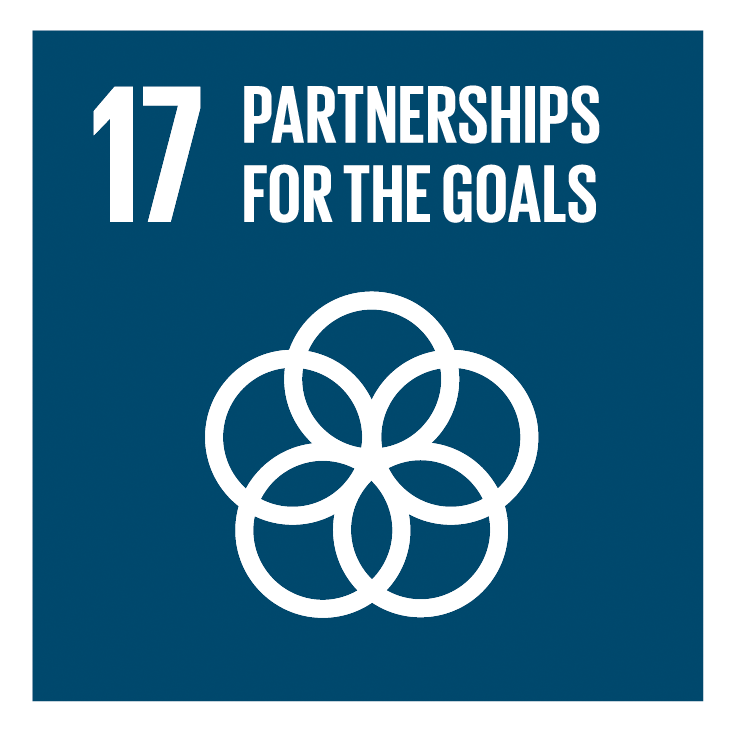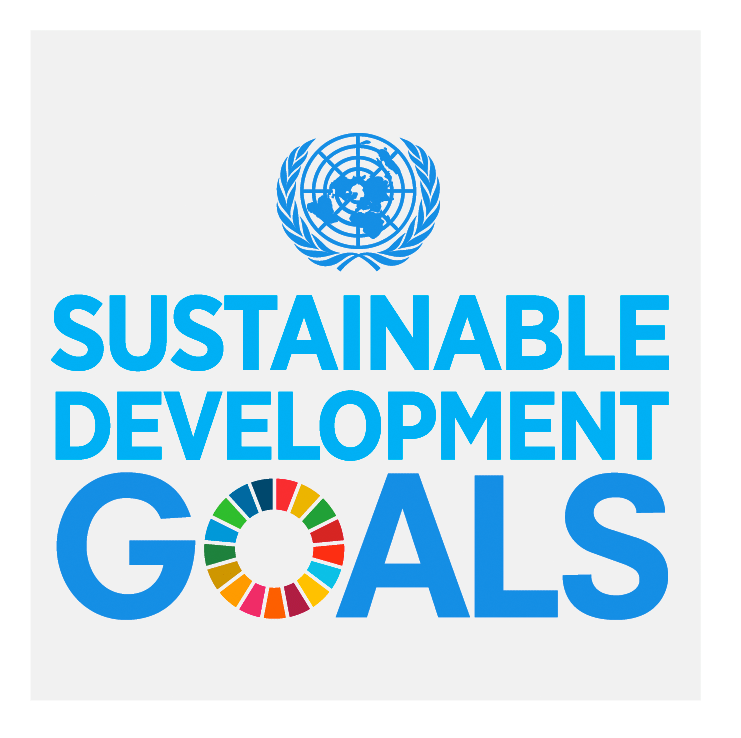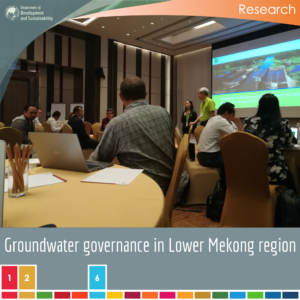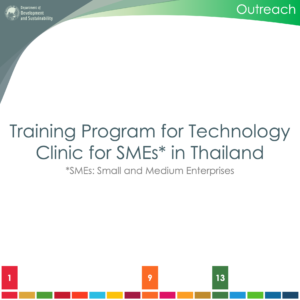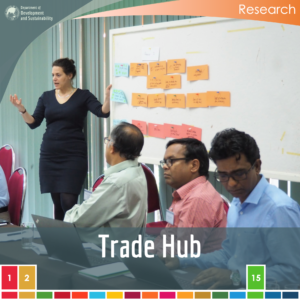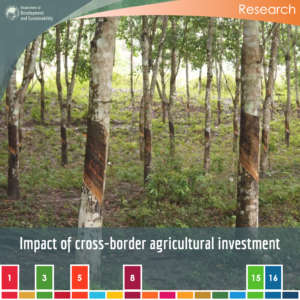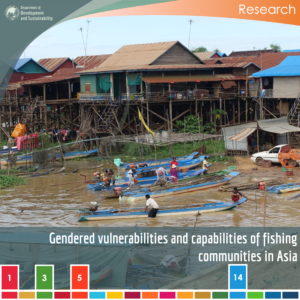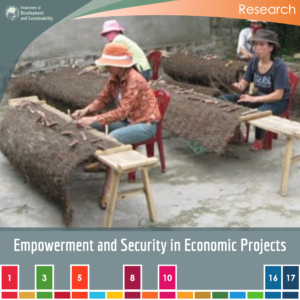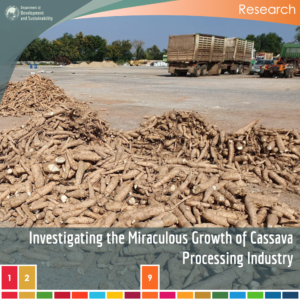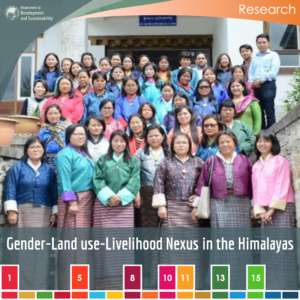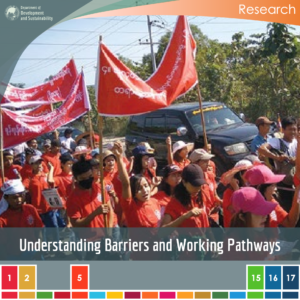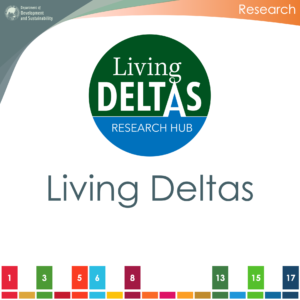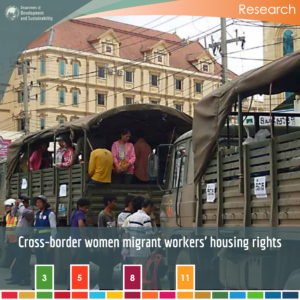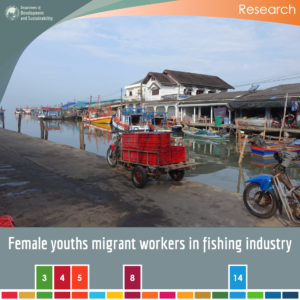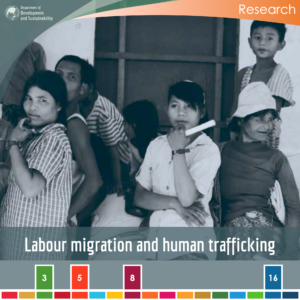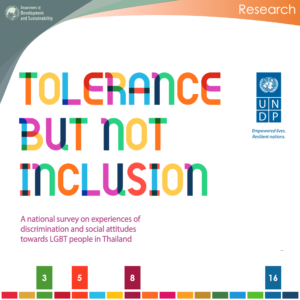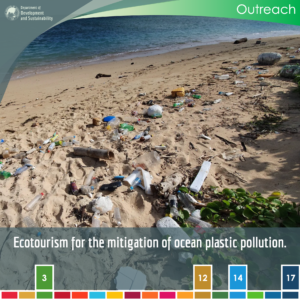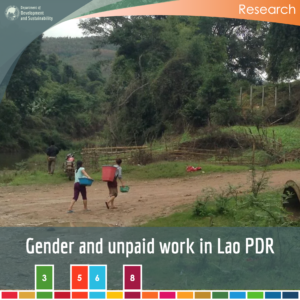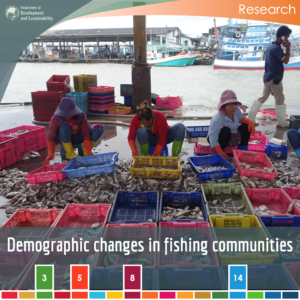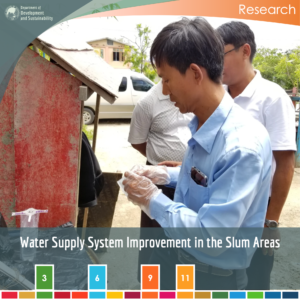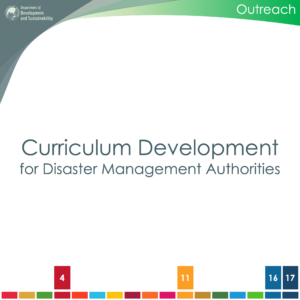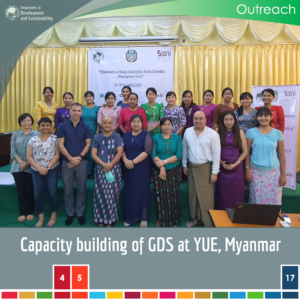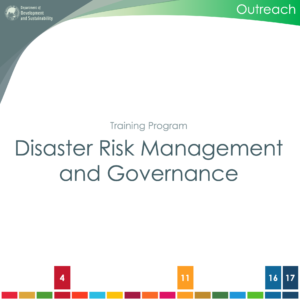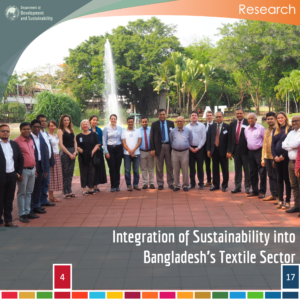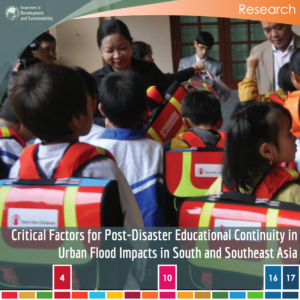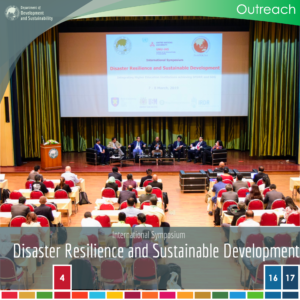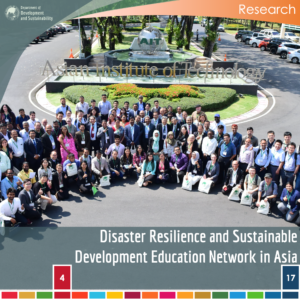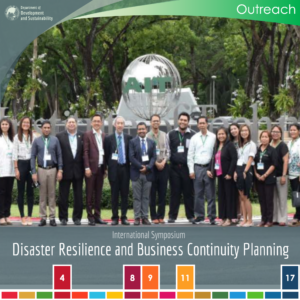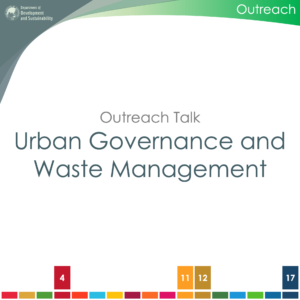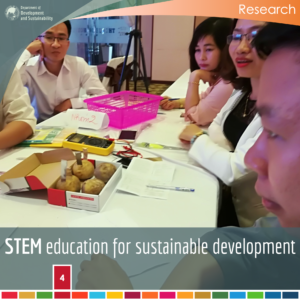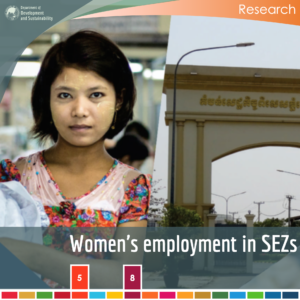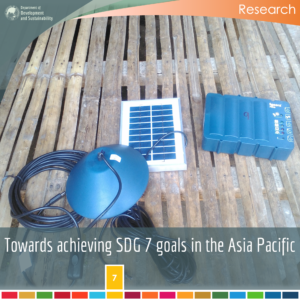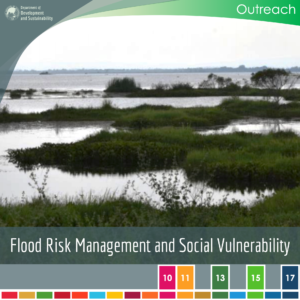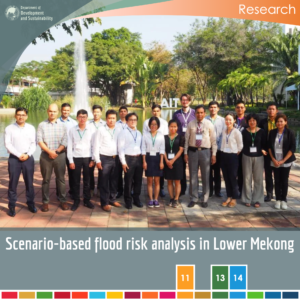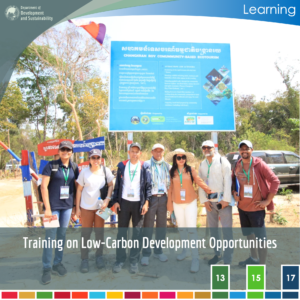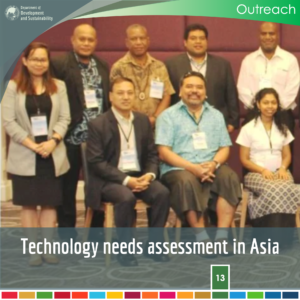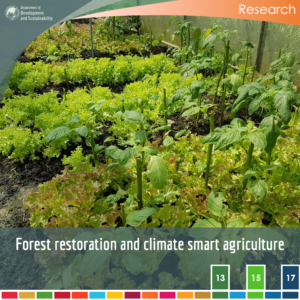Groundwater plays a crucial role in the water security, poverty reduction and sustainable development of the Mekong region. However, in many countries either the groundwater is under-utilized or over exploited and at the same time affected by multiple stresses such as rapid urbanization, population growth, climate change and climate variability....
Read More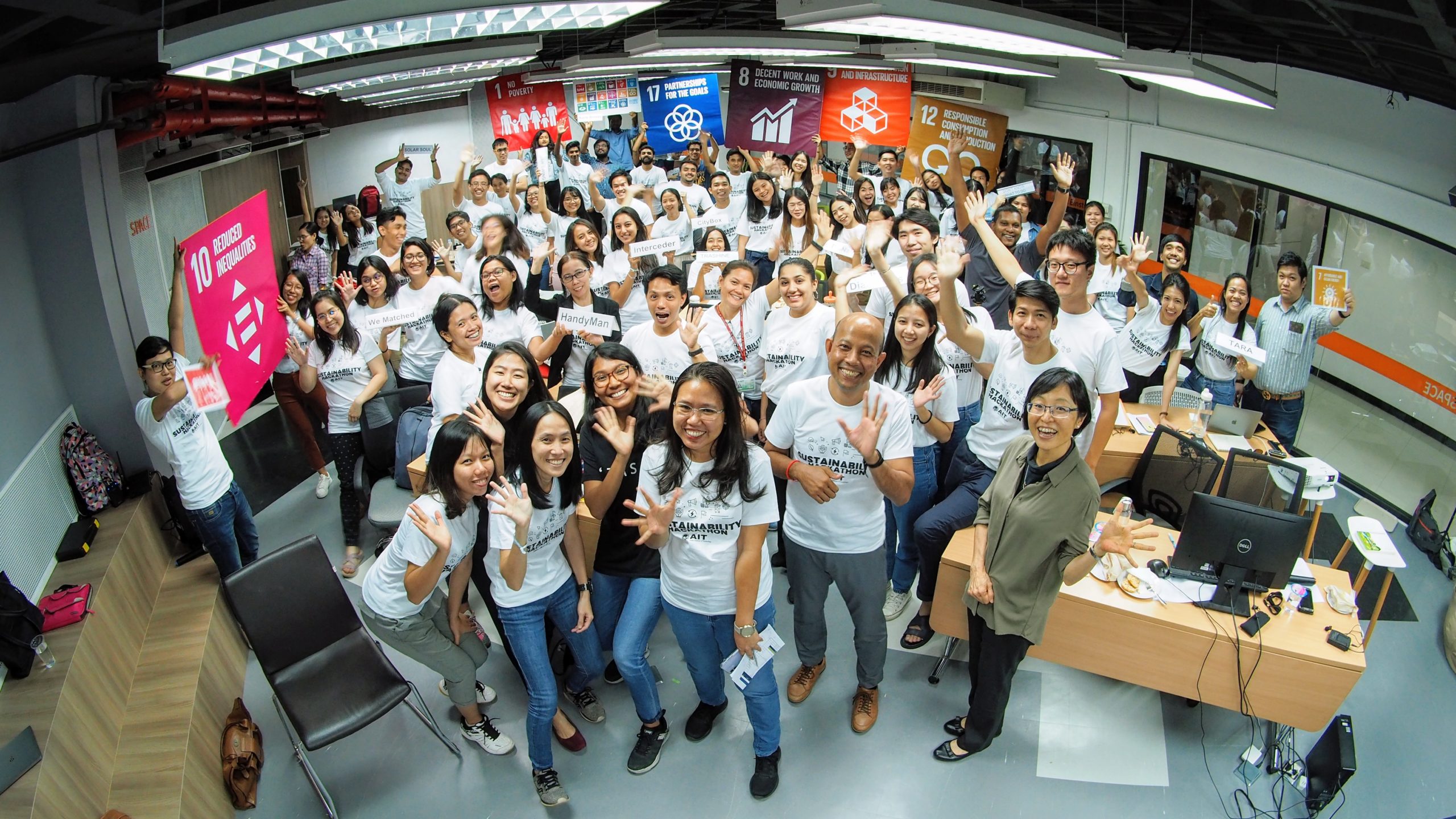
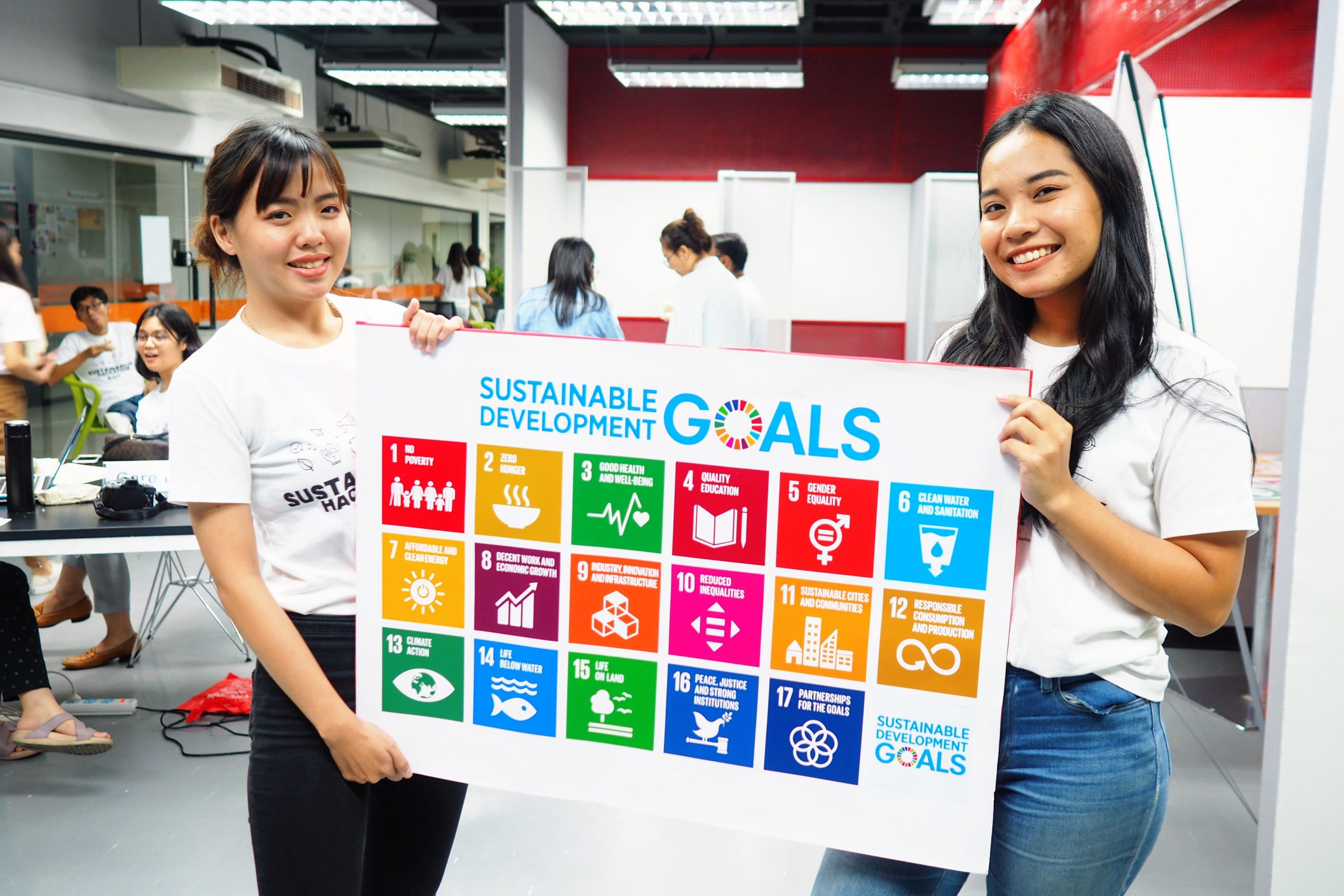
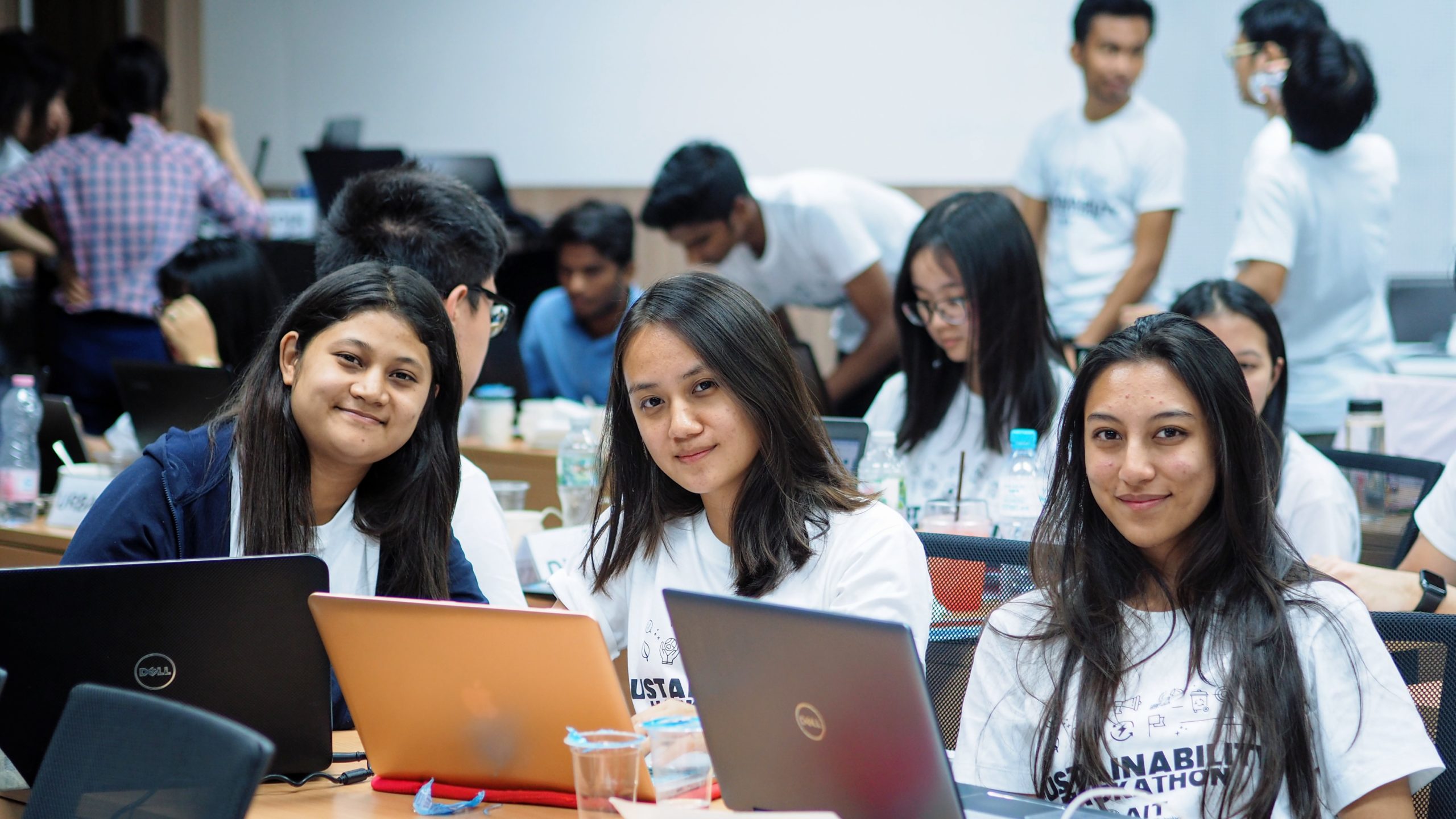

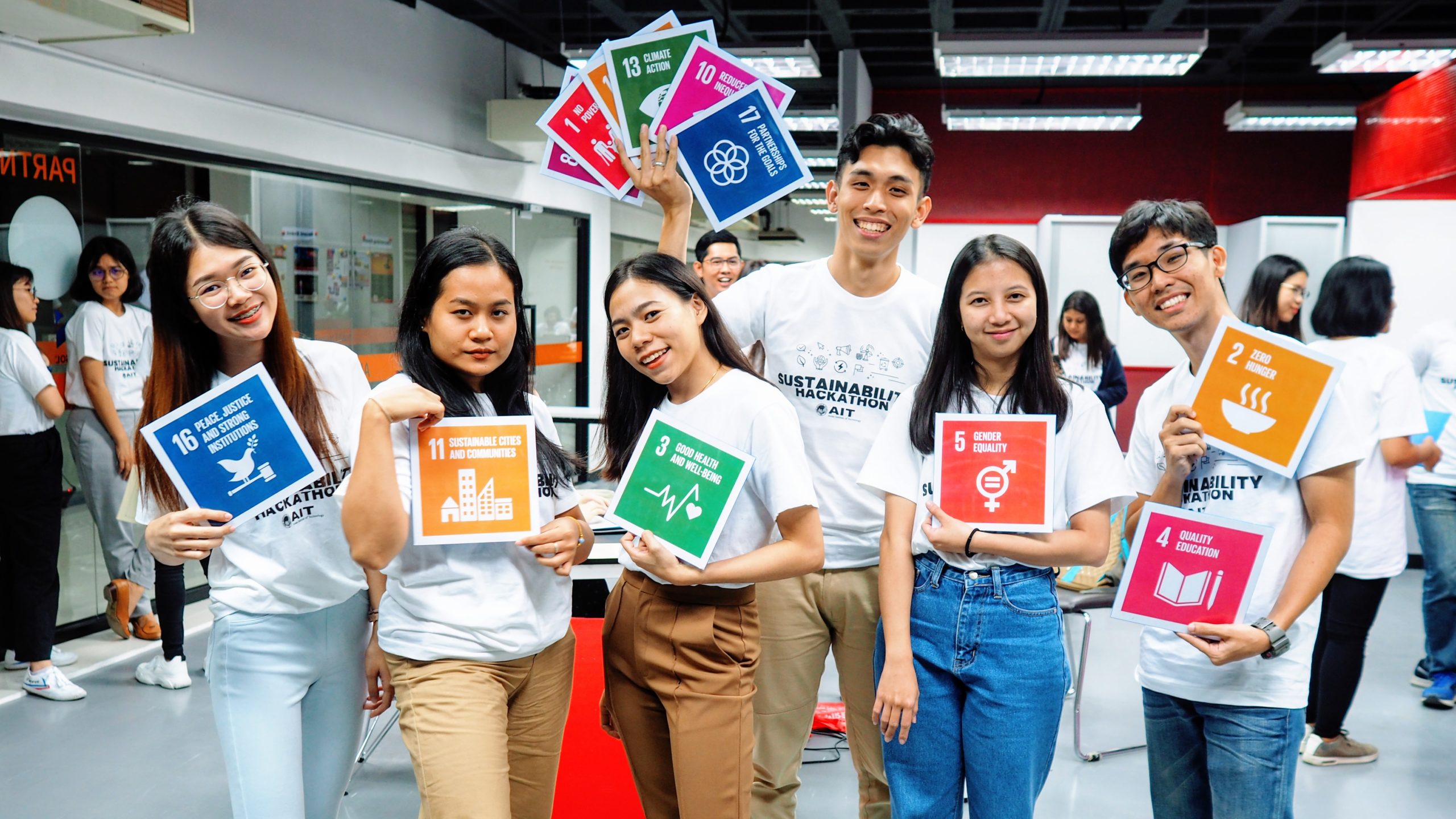
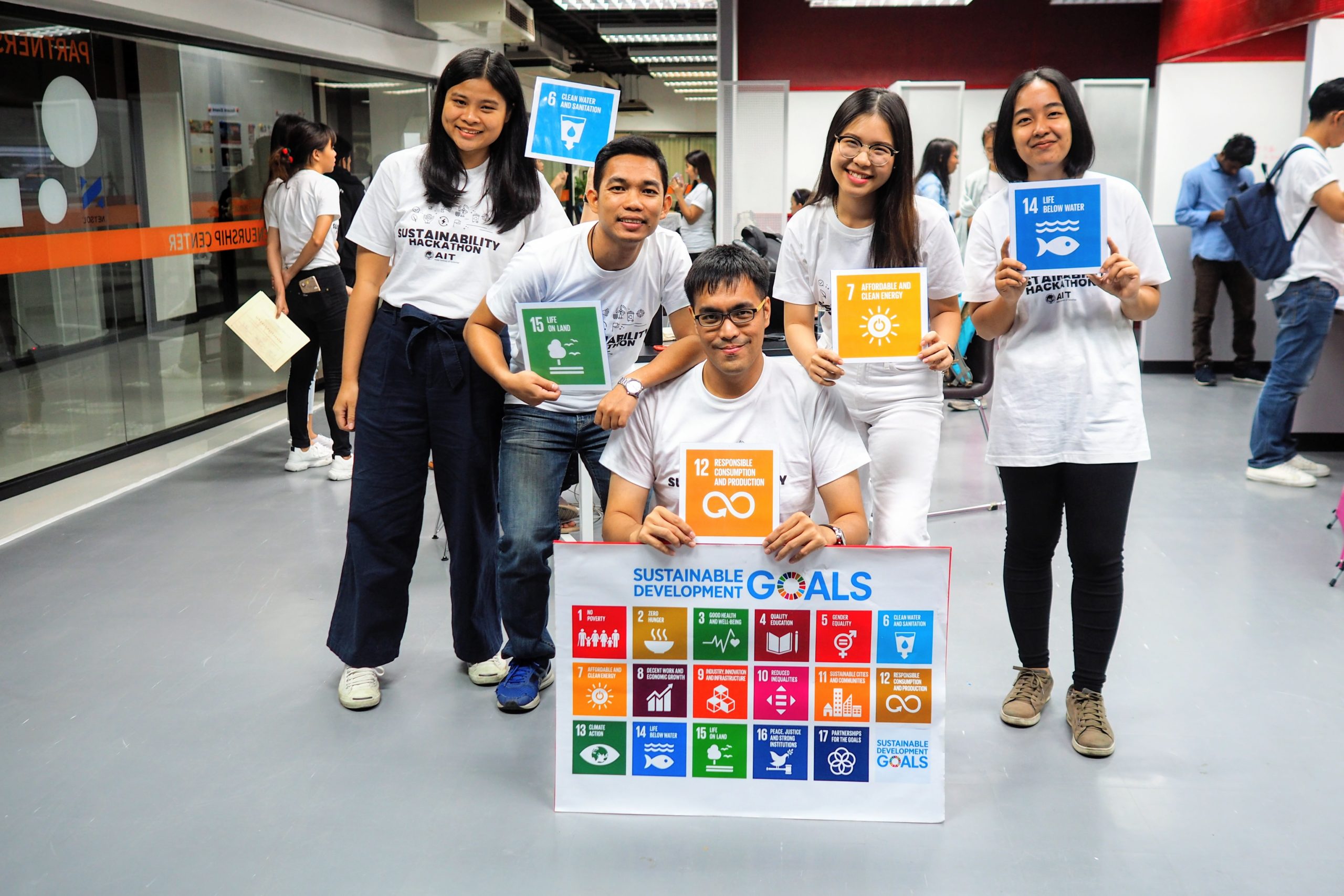
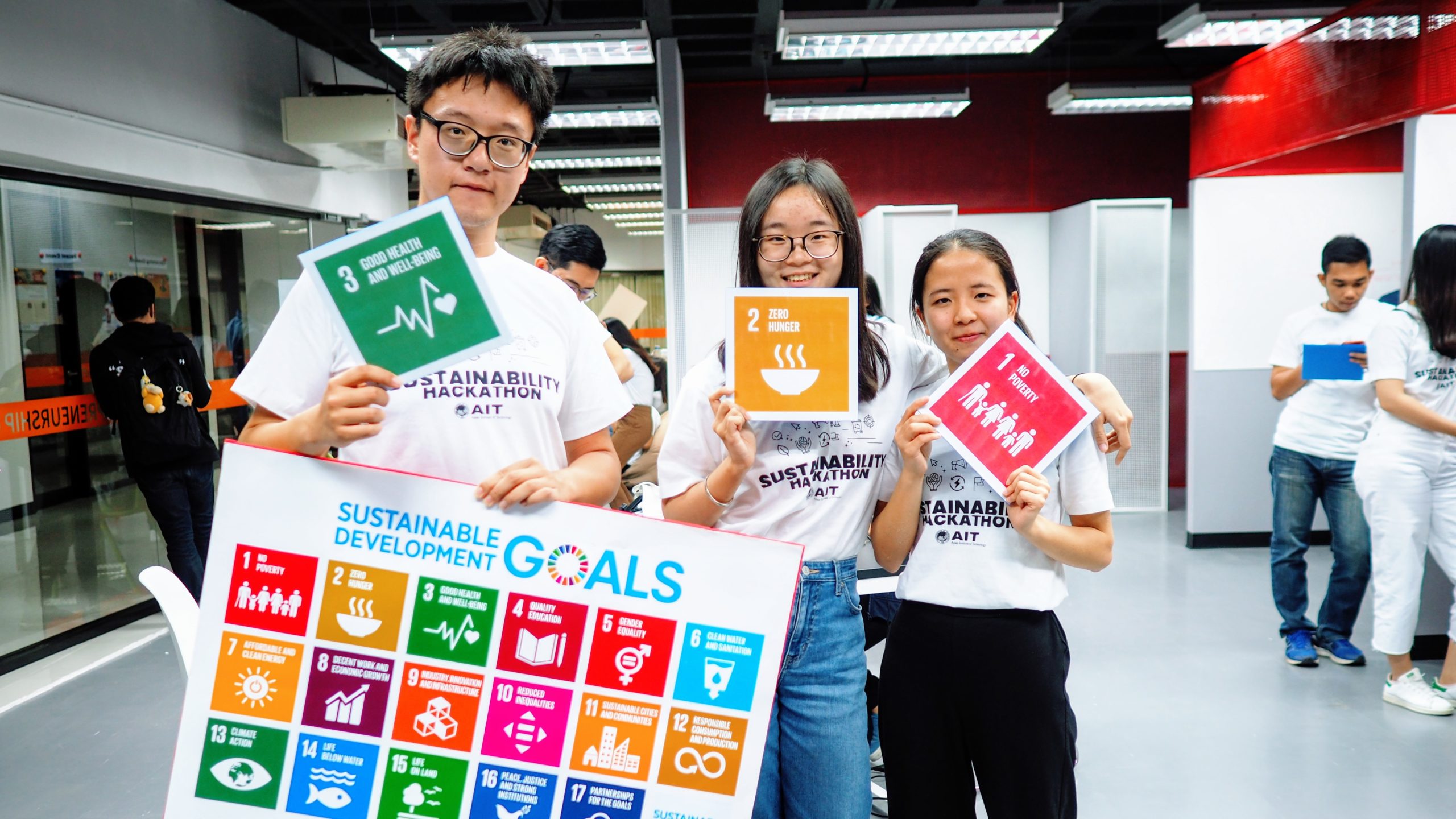
Department of Development and Sustainability is working to help achieve Sustainable Development Goals (SDGs) through our research, outreach and teaching work. Below are some examples of our projects. Click the SDG to check out on our projects.
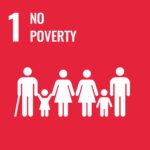
Goal 1: No Poverty
The project was initiated based on the request from the Climate Technology Centre and Network (CTCN) which is the operational arm of the United Nations Framework Convention on Climate Change (UNFCCC) Technology Mechanism and hosted by the United Nations Environment Programme (UNEP) in collaboration with the United Nations Industrial Development...
Read MoreThousands of species are threatened globally with extinction, there has been a swift decline in biodiversity and ecosystem resilience and people are being kept in poverty as trade in wildlife and agricultural commodities from low and middle-income countries has rapidly increased. The Trade Hub includes economists, trade modellers, political scientists,...
Read MoreThe study analyzed the impact of rubber plantation in Northern Laos, Myanmar and Cambodia. It showed how different farmers are impacted and adjust in different ways, and often times, the burden of adjustment falls on women. Keywords rubber, Laos, Myanmar, Cambodia, gender
Read MoreThe project studied migration in fishing communities in Cambodia, India and Sri Lanka. It explored how migration is used as a strategy to manage diminishing fishing resources and the deprivation that fishers are facing vis a vis large players in fishing. In Cambodia, it demonstrated how women play a crucial...
Read MoreThis research project, using both qualitative and quantitative data collection methods, focused on women’s economic empowerment and social protection projects in four Mekong countries: Cambodia, Lao PDR, Myanmar and Vietnam. It involved an exploration of the gaps between the level of policy makers and intended beneficiaries in terms of their...
Read MoreThailand is the world’s No.1 exporter of processed cassava products, especially tapioca starch powder. Any other country pales in comparison. While it is well known that tapioca production and export have grown dramatically over the last several decades in Thailand, it is not widely known why this industry has grown...
Read MoreThe research focuses on gender mainstreaming in the nexus of climate change, land use, and informal livelihoods in Himalayan cities. Expected activities include: 1) survey and mapping to examine how women in informal settlements use the urban spaces for their livelihoods and what the impacts of climate change on their...
Read MoreThe aim of the project is to assess the extent and forms of women’s participation in the political sphere in Myanmar, and explore barriers and enabling factors. We define participation beyond just actions that influence or support governments to taking part in collective decision-making in a broad sense. Previous research...
Read MoreThe Living Deltas Research Hub is funded for five years (2019-2024) and operates across four delta systems – Red River, Mekong deltas in Vietnam; the Ganges-Brahmaputra-Meghna system in Bangladesh and India. We call these socio-ecological systems. The Living Deltas Hub’s AIM is to tackle the problem of delta degradation in...
Read More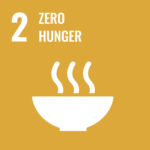
Goal 2: Zero Hunger
Thailand is the world’s No.1 exporter of processed cassava products, especially tapioca starch powder. Any other country pales in comparison. While it is well known that tapioca production and export have grown dramatically over the last several decades in Thailand, it is not widely known why this industry has grown...
Read MoreThousands of species are threatened globally with extinction, there has been a swift decline in biodiversity and ecosystem resilience and people are being kept in poverty as trade in wildlife and agricultural commodities from low and middle-income countries has rapidly increased. The Trade Hub includes economists, trade modellers, political scientists,...
Read MoreThe aim of the project is to assess the extent and forms of women’s participation in the political sphere in Myanmar, and explore barriers and enabling factors. We define participation beyond just actions that influence or support governments to taking part in collective decision-making in a broad sense. Previous research...
Read MoreGroundwater plays a crucial role in the water security, poverty reduction and sustainable development of the Mekong region. However, in many countries either the groundwater is under-utilized or over exploited and at the same time affected by multiple stresses such as rapid urbanization, population growth, climate change and climate variability....
Read More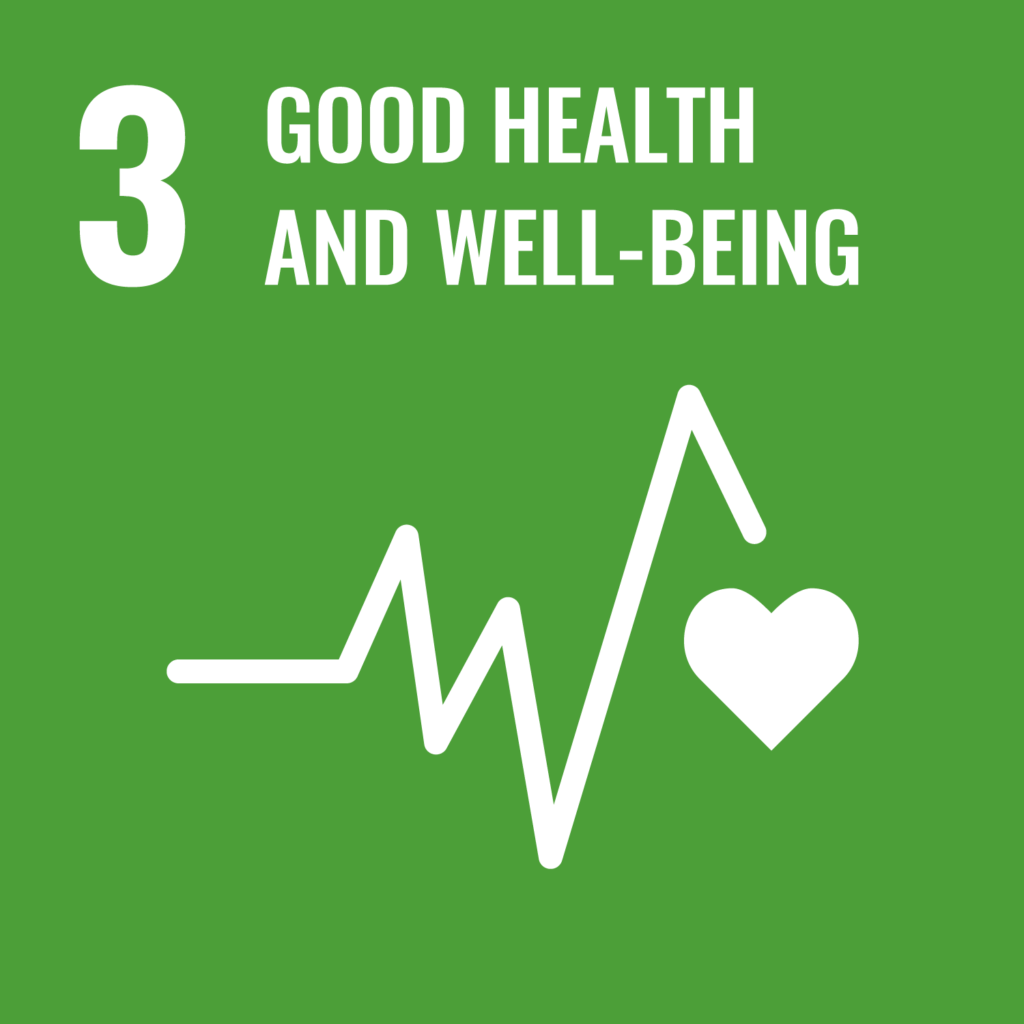
Goal 3: Good health and well-being for people
AIT did the Thailand part of the study and analyzed housing rights of migrants (Cambodian, Burmese, Lao) in Pathumthani, Thailand. The study found that women tend to pay higher rent for the reason for better security. Keywords Migration, Thailand, Housing, Cambodia, Myanmar, Lao, security
Read MoreThere are many young migrants from Cambodia to Thailand, who migrant alone or with their family members. The study explored the opportunity cost of such decision to migrate and the advantage that they might get by migrating. The study showed the struggle that young women migrants face to balance their...
Read MoreThe project studied migration in fishing communities in Cambodia, India and Sri Lanka. It explored how migration is used as a strategy to manage diminishing fishing resources and the deprivation that fishers are facing vis a vis large players in fishing. In Cambodia, it demonstrated how women play a crucial...
Read MoreThe study reviewed the laws and regulations related to human trafficking and migration in Thailand and Cambodia. It identified some limitations in laws itself, as well as in its implementation. Keywords human trafficking, migration, Thailand, Cambodia, laws
Read MoreThe study analyzed the impact of rubber plantation in Northern Laos, Myanmar and Cambodia. It showed how different farmers are impacted and adjust in different ways, and often times, the burden of adjustment falls on women. Keywords rubber, Laos, Myanmar, Cambodia, gender
Read MoreThis research project, using both qualitative and quantitative data collection methods, focused on women’s economic empowerment and social protection projects in four Mekong countries: Cambodia, Lao PDR, Myanmar and Vietnam. It involved an exploration of the gaps between the level of policy makers and intended beneficiaries in terms of their...
Read MoreThe Living Deltas Research Hub is funded for five years (2019-2024) and operates across four delta systems – Red River, Mekong deltas in Vietnam; the Ganges-Brahmaputra-Meghna system in Bangladesh and India. We call these socio-ecological systems. The Living Deltas Hub’s AIM is to tackle the problem of delta degradation in...
Read MoreThere is a lack of comprehensive research on attitude toward LGBT people and challenges they face, making it difficult for advocates, development partners and policy makers to promote effective policies and make informed decisions. To address this the ‘Being LGBTI in Asia’ UNDP program, which is aimed at advancing the...
Read MoreBased on the request from Prefectural University of Hiroshima, AIT acts as a focal point in Thailand for this trilateral civic engagement project to address the ocean plastic pollution problem. Annually, eight million metric tons of plastic waste is discharged into the oceanic zone, causing serious damage to fisheries and...
Read MoreWomen’s unpaid work responsibilities in Laos is restricting women to take up productive work. Access to water and electricity, as well as childcare services are essential for rural women to utilize the economic opportunities. The study called for better childcare services in the rural communities. Keywords Laos, women, childcare, unpaid work
Read MoreThere is a large demographic change in fishing communities in Asia – either because of aging or because of out-migration. The study compared the situation in Thailand (aging society) and Cambodia (out-migration) fishing communities, and analyzed what has been the impact of demographic changes to fishing occupation, and how fishers...
Read MoreAs requested by JICA-RI, AIT acted as a technical advisor to the impact assessment of urban water supply in Myanmar. JICA has supported the effort of the Government of Myanmar to expand the access to safe water and to improve the water supply system in the managerial and the technical...
Read More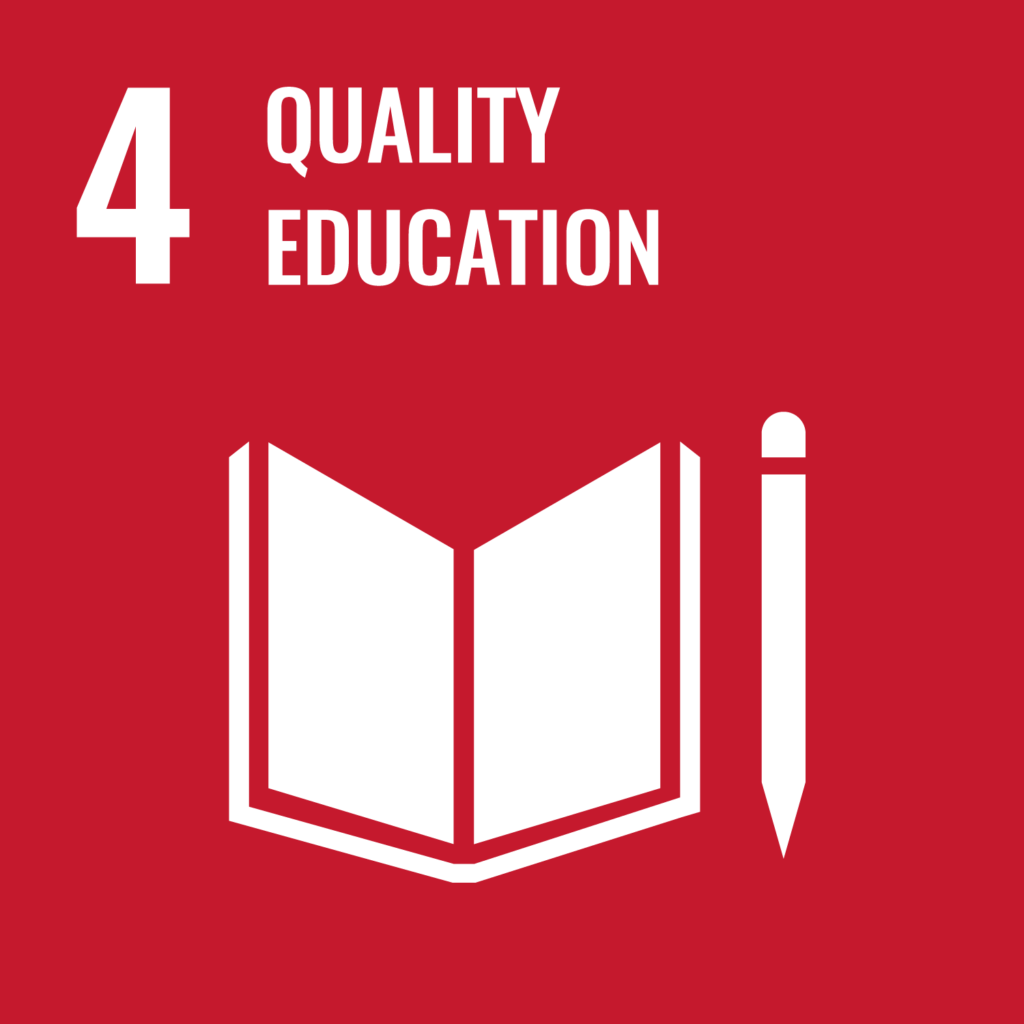
Goal 4: Quality Education
The Sindh Resilience Project, with the Sindh Provincial Disaster Management Authority (PDMA), signed a contract with the Asian Institute of Technology (AIT) on 28th June 2019, to execute a project “Capacity Building through Curriculum Development, Conduct Various Training programs and workshops for Provincial and District Disaster Management Authorities and Line...
Read MoreThis project contributes to capacity building of YUE for qualitative research. It consists of graduate education at AIT, curriculum development of gender and development at YUE, qualitative research training workshop and small research projects, and joint supervision of students. As the result of the project, YUE now runs a gender...
Read MoreThe Training Program on Disaster Risk Management and Governance aims to increase efficiency in disaster preparedness, mitigation and management to minimize the loss of life and properties in disaster or emergency situations. During the training workshop we will deliver case studies and best practices from international perspectives through the international...
Read MoreTo update the curriculum of universities in line with SDG goal on quality of education with focus on issues related to sustainability. Keywords: Sustainability, education, textile education, training
Read MoreThe research project investigated the critical factors for educational continuity in the case of urban flooding in South and Southeast Asia. The research studied three countries – Bangladesh, Thailand, and Vietnam – which are recurrently affected by floods. The research specifically aimed at extrapolating the main blockers and enablers of educational continuity. Towards this goal, primary, middle...
Read MoreThe International Symposium on “Disaster Resilience and Sustainable Development” is one of the initiatives of ProSPER.Net project “Disaster Resilience and Sustainable Development Education Network in Asia” lead by Asian Institute of Technology, Thailand along with the partner universities in the Asia Pacific Region. The symposium will also provide an opportunity...
Read MoreThis project aims to establish a working group on Higher Education Institutions on Disaster Resilience and Sustainable Development under the ProSPER.Net umbrella. Its aim is to form a robust regional network with the collective capacity to lead initiatives that protect society from shocks to physical, socio-cultural, politico-economic and natural systems...
Read MoreThere are many young migrants from Cambodia to Thailand, who migrant alone or with their family members. The study explored the opportunity cost of such decision to migrate and the advantage that they might get by migrating. The study showed the struggle that young women migrants face to balance their...
Read MoreDisaster Resilience and Business Continuity Planning at the various level for Advocating Safety of Public and Private Hospitals, Schools, and other Critical Structures are one of the key components for mainstreaming resilience and Disaster Risk Reduction in higher education. This workshop will contribute in exchange of knowledge and dialogues which...
Read MoreSince 2018, Dr. Sohee M. Kim, Assistant Professor at UEM has been participated as a guest lecturer in the capacity building & training programs and student workshop on “Low-carbon Integrated Solid Wastes Management and Circular Economy”, organized and funded by United Nations Institute for Training and Research (UNITAR), Green Technology...
Read MoreVietnam is experiencing with rapid demographic and social change including rural out migration and aging population in rural areas. Rapid economic growth and industrialization have not been friendly to the environment and natural resources; and urbanization and population growth are causing rapidly increasing waste and pollution challenges. Since every SDG...
Read More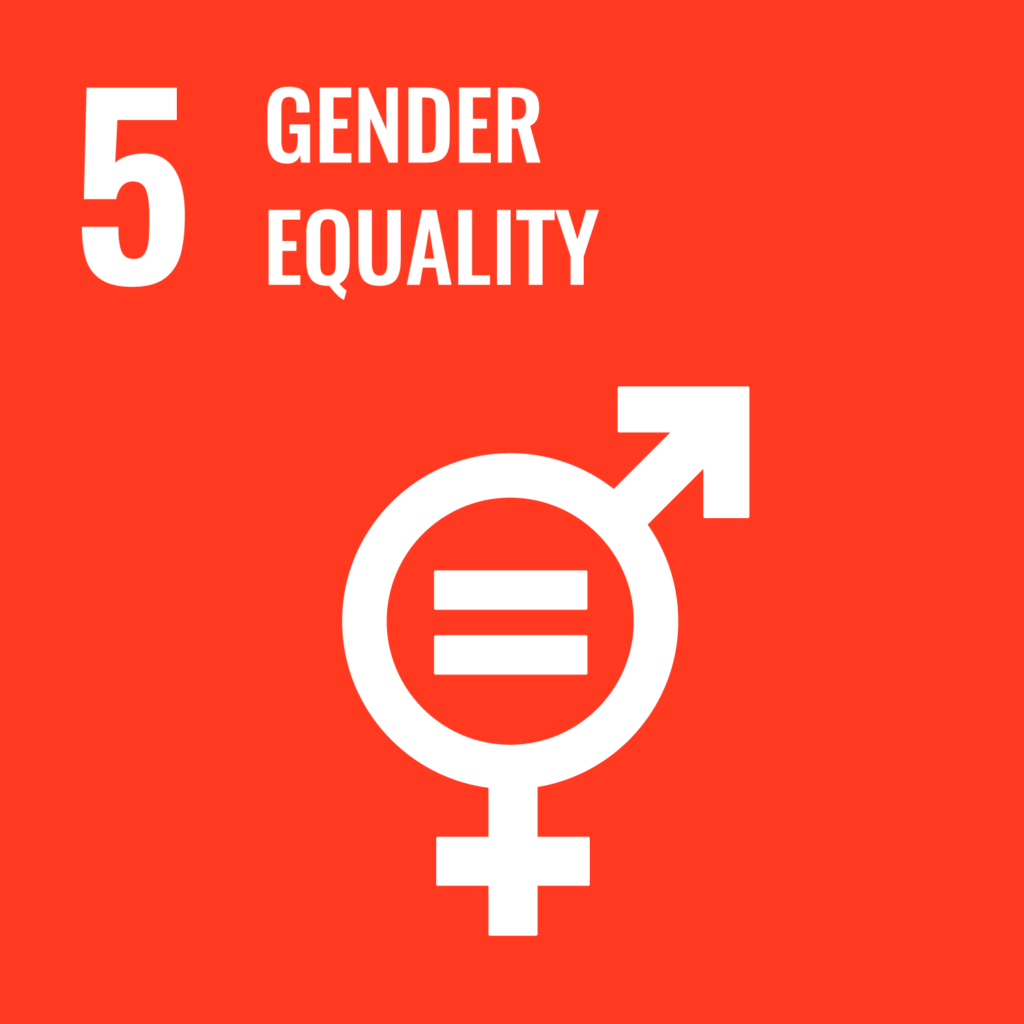
Goal 5: Gender equality
The Living Deltas Research Hub is funded for five years (2019-2024) and operates across four delta systems – Red River, Mekong deltas in Vietnam; the Ganges-Brahmaputra-Meghna system in Bangladesh and India. We call these socio-ecological systems. The Living Deltas Hub’s AIM is to tackle the problem of delta degradation in...
Read MoreThere is a large demographic change in fishing communities in Asia – either because of aging or because of out-migration. The study compared the situation in Thailand (aging society) and Cambodia (out-migration) fishing communities, and analyzed what has been the impact of demographic changes to fishing occupation, and how fishers...
Read MoreThere are many young migrants from Cambodia to Thailand, who migrant alone or with their family members. The study explored the opportunity cost of such decision to migrate and the advantage that they might get by migrating. The study showed the struggle that young women migrants face to balance their...
Read MoreWomen’s unpaid work responsibilities in Laos is restricting women to take up productive work. Access to water and electricity, as well as childcare services are essential for rural women to utilize the economic opportunities. The study called for better childcare services in the rural communities. Keywords Laos, women, childcare, unpaid work
Read MoreThe project studied migration in fishing communities in Cambodia, India and Sri Lanka. It explored how migration is used as a strategy to manage diminishing fishing resources and the deprivation that fishers are facing vis a vis large players in fishing. In Cambodia, it demonstrated how women play a crucial...
Read MoreThis research project, using both qualitative and quantitative data collection methods, focused on women’s economic empowerment and social protection projects in four Mekong countries: Cambodia, Lao PDR, Myanmar and Vietnam. It involved an exploration of the gaps between the level of policy makers and intended beneficiaries in terms of their...
Read MoreGuided by the question of whether the jobs being created within these zones are promoting decent work for women migrant workers, this study developed four case studies of SEZs: Thilawa SEZ (Yangon Region, Myanmar), Phnom Penh SEZ (Phnom Penh, Cambodia), Manhattan SEZ (Svay Rieng Province, Cambodia), and Tak SEZ (Tak...
Read MoreThe study analyzed the impact of rubber plantation in Northern Laos, Myanmar and Cambodia. It showed how different farmers are impacted and adjust in different ways, and often times, the burden of adjustment falls on women. Keywords rubber, Laos, Myanmar, Cambodia, gender
Read MoreAIT did the Thailand part of the study and analyzed housing rights of migrants (Cambodian, Burmese, Lao) in Pathumthani, Thailand. The study found that women tend to pay higher rent for the reason for better security. Keywords Migration, Thailand, Housing, Cambodia, Myanmar, Lao, security
Read MoreThe aim of the project is to assess the extent and forms of women’s participation in the political sphere in Myanmar, and explore barriers and enabling factors. We define participation beyond just actions that influence or support governments to taking part in collective decision-making in a broad sense. Previous research...
Read MoreThere is a lack of comprehensive research on attitude toward LGBT people and challenges they face, making it difficult for advocates, development partners and policy makers to promote effective policies and make informed decisions. To address this the ‘Being LGBTI in Asia’ UNDP program, which is aimed at advancing the...
Read MoreThe study reviewed the laws and regulations related to human trafficking and migration in Thailand and Cambodia. It identified some limitations in laws itself, as well as in its implementation. Keywords human trafficking, migration, Thailand, Cambodia, laws
Read MoreThis project contributes to capacity building of YUE for qualitative research. It consists of graduate education at AIT, curriculum development of gender and development at YUE, qualitative research training workshop and small research projects, and joint supervision of students. As the result of the project, YUE now runs a gender...
Read MoreThe research focuses on gender mainstreaming in the nexus of climate change, land use, and informal livelihoods in Himalayan cities. Expected activities include: 1) survey and mapping to examine how women in informal settlements use the urban spaces for their livelihoods and what the impacts of climate change on their...
Read More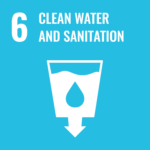
Goal 6: Clean water and sanitation
Women’s unpaid work responsibilities in Laos is restricting women to take up productive work. Access to water and electricity, as well as childcare services are essential for rural women to utilize the economic opportunities. The study called for better childcare services in the rural communities. Keywords Laos, women, childcare, unpaid work
Read MoreThe Living Deltas Research Hub is funded for five years (2019-2024) and operates across four delta systems – Red River, Mekong deltas in Vietnam; the Ganges-Brahmaputra-Meghna system in Bangladesh and India. We call these socio-ecological systems. The Living Deltas Hub’s AIM is to tackle the problem of delta degradation in...
Read MoreGroundwater plays a crucial role in the water security, poverty reduction and sustainable development of the Mekong region. However, in many countries either the groundwater is under-utilized or over exploited and at the same time affected by multiple stresses such as rapid urbanization, population growth, climate change and climate variability....
Read MoreAs requested by JICA-RI, AIT acted as a technical advisor to the impact assessment of urban water supply in Myanmar. JICA has supported the effort of the Government of Myanmar to expand the access to safe water and to improve the water supply system in the managerial and the technical...
Read More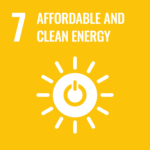
Goal 7: Affordable and clean energy
The project will develop a database of policies, interventions and best practices in the energy sector (with focus on SDG7 targets). The database will be uploaded in the Energy Portal as a knowledge product for policymakers, energy planners and practitioners. At the...
Read More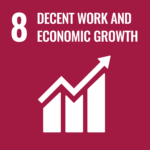
Goal 8: Decent work and economic growth
AIT did the Thailand part of the study and analyzed housing rights of migrants (Cambodian, Burmese, Lao) in Pathumthani, Thailand. The study found that women tend to pay higher rent for the reason for better security. Keywords Migration, Thailand, Housing, Cambodia, Myanmar, Lao, security
Read MoreThere is a lack of comprehensive research on attitude toward LGBT people and challenges they face, making it difficult for advocates, development partners and policy makers to promote effective policies and make informed decisions. To address this the ‘Being LGBTI in Asia’ UNDP program, which is aimed at advancing the...
Read MoreThe study analyzed the impact of rubber plantation in Northern Laos, Myanmar and Cambodia. It showed how different farmers are impacted and adjust in different ways, and often times, the burden of adjustment falls on women. Keywords rubber, Laos, Myanmar, Cambodia, gender
Read MoreThe project aims to overview the status, risks and trends of the flood disasters in the Mueang District as a case to develop a system-based multi-disciplinary framework for local level risk assessment and recommend necessary future actions for decision-makers. The specific objectives of the project are; 1. To identify critical...
Read MoreThere are many young migrants from Cambodia to Thailand, who migrant alone or with their family members. The study explored the opportunity cost of such decision to migrate and the advantage that they might get by migrating. The study showed the struggle that young women migrants face to balance their...
Read MoreThe research focuses on gender mainstreaming in the nexus of climate change, land use, and informal livelihoods in Himalayan cities. Expected activities include: 1) survey and mapping to examine how women in informal settlements use the urban spaces for their livelihoods and what the impacts of climate change on their...
Read MoreThis research project, using both qualitative and quantitative data collection methods, focused on women’s economic empowerment and social protection projects in four Mekong countries: Cambodia, Lao PDR, Myanmar and Vietnam. It involved an exploration of the gaps between the level of policy makers and intended beneficiaries in terms of their...
Read MoreDisaster Resilience and Business Continuity Planning at the various level for Advocating Safety of Public and Private Hospitals, Schools, and other Critical Structures are one of the key components for mainstreaming resilience and Disaster Risk Reduction in higher education. This workshop will contribute in exchange of knowledge and dialogues which...
Read MoreThe Living Deltas Research Hub is funded for five years (2019-2024) and operates across four delta systems – Red River, Mekong deltas in Vietnam; the Ganges-Brahmaputra-Meghna system in Bangladesh and India. We call these socio-ecological systems. The Living Deltas Hub’s AIM is to tackle the problem of delta degradation in...
Read MoreThere is a large demographic change in fishing communities in Asia – either because of aging or because of out-migration. The study compared the situation in Thailand (aging society) and Cambodia (out-migration) fishing communities, and analyzed what has been the impact of demographic changes to fishing occupation, and how fishers...
Read MoreThe study reviewed the laws and regulations related to human trafficking and migration in Thailand and Cambodia. It identified some limitations in laws itself, as well as in its implementation. Keywords human trafficking, migration, Thailand, Cambodia, laws
Read MoreWomen’s unpaid work responsibilities in Laos is restricting women to take up productive work. Access to water and electricity, as well as childcare services are essential for rural women to utilize the economic opportunities. The study called for better childcare services in the rural communities. Keywords Laos, women, childcare, unpaid work
Read MoreGuided by the question of whether the jobs being created within these zones are promoting decent work for women migrant workers, this study developed four case studies of SEZs: Thilawa SEZ (Yangon Region, Myanmar), Phnom Penh SEZ (Phnom Penh, Cambodia), Manhattan SEZ (Svay Rieng Province, Cambodia), and Tak SEZ (Tak...
Read More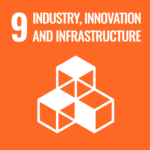
Goal 9: Industry, Innovation, and Infrastructure
The project was initiated based on the request from the Climate Technology Centre and Network (CTCN) which is the operational arm of the United Nations Framework Convention on Climate Change (UNFCCC) Technology Mechanism and hosted by the United Nations Environment Programme (UNEP) in collaboration with the United Nations Industrial Development...
Read MoreThailand is the world’s No.1 exporter of processed cassava products, especially tapioca starch powder. Any other country pales in comparison. While it is well known that tapioca production and export have grown dramatically over the last several decades in Thailand, it is not widely known why this industry has grown...
Read MoreAs requested by JICA-RI, AIT acted as a technical advisor to the impact assessment of urban water supply in Myanmar. JICA has supported the effort of the Government of Myanmar to expand the access to safe water and to improve the water supply system in the managerial and the technical...
Read MoreDisaster Resilience and Business Continuity Planning at the various level for Advocating Safety of Public and Private Hospitals, Schools, and other Critical Structures are one of the key components for mainstreaming resilience and Disaster Risk Reduction in higher education. This workshop will contribute in exchange of knowledge and dialogues which...
Read More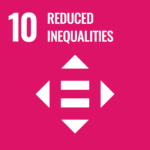
Goal 10: Reducing inequalities
The project aims to overview the status, risks and trends of the flood disasters in the Mueang District as a case to develop a system-based multi-disciplinary framework for local level risk assessment and recommend necessary future actions for decision-makers. The specific objectives of the project are; 1. To identify critical...
Read MoreThe research focuses on gender mainstreaming in the nexus of climate change, land use, and informal livelihoods in Himalayan cities. Expected activities include: 1) survey and mapping to examine how women in informal settlements use the urban spaces for their livelihoods and what the impacts of climate change on their...
Read MoreThe research project investigated the critical factors for educational continuity in the case of urban flooding in South and Southeast Asia. The research studied three countries – Bangladesh, Thailand, and Vietnam – which are recurrently affected by floods. The research specifically aimed at extrapolating the main blockers and enablers of educational continuity. Towards this goal, primary, middle...
Read MoreThis research project, using both qualitative and quantitative data collection methods, focused on women’s economic empowerment and social protection projects in four Mekong countries: Cambodia, Lao PDR, Myanmar and Vietnam. It involved an exploration of the gaps between the level of policy makers and intended beneficiaries in terms of their...
Read More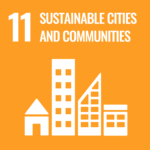
Goal 11: Sustainable cities and communities
Disaster Resilience and Business Continuity Planning at the various level for Advocating Safety of Public and Private Hospitals, Schools, and other Critical Structures are one of the key components for mainstreaming resilience and Disaster Risk Reduction in higher education. This workshop will contribute in exchange of knowledge and dialogues which...
Read MoreThe project aimed at spatial and policy assessment on the future vulnerability to flood hazards in the context of urban growth for Lower Mekong region. Activities performed include: 1) development and dissemination of a flood risk assessment system combined with open-source global-scale geospatial and socioeconomic datasets on a cloud-based platform;...
Read MoreThe research focuses on gender mainstreaming in the nexus of climate change, land use, and informal livelihoods in Himalayan cities. Expected activities include: 1) survey and mapping to examine how women in informal settlements use the urban spaces for their livelihoods and what the impacts of climate change on their...
Read MoreThe Training Program on Disaster Risk Management and Governance aims to increase efficiency in disaster preparedness, mitigation and management to minimize the loss of life and properties in disaster or emergency situations. During the training workshop we will deliver case studies and best practices from international perspectives through the international...
Read MoreSince 2018, Dr. Sohee M. Kim, Assistant Professor at UEM has been participated as a guest lecturer in the capacity building & training programs and student workshop on “Low-carbon Integrated Solid Wastes Management and Circular Economy”, organized and funded by United Nations Institute for Training and Research (UNITAR), Green Technology...
Read MoreThe project aims to overview the status, risks and trends of the flood disasters in the Mueang District as a case to develop a system-based multi-disciplinary framework for local level risk assessment and recommend necessary future actions for decision-makers. The specific objectives of the project are; 1. To identify critical...
Read MoreAs requested by JICA-RI, AIT acted as a technical advisor to the impact assessment of urban water supply in Myanmar. JICA has supported the effort of the Government of Myanmar to expand the access to safe water and to improve the water supply system in the managerial and the technical...
Read MoreThe Sindh Resilience Project, with the Sindh Provincial Disaster Management Authority (PDMA), signed a contract with the Asian Institute of Technology (AIT) on 28th June 2019, to execute a project “Capacity Building through Curriculum Development, Conduct Various Training programs and workshops for Provincial and District Disaster Management Authorities and Line...
Read MoreAIT did the Thailand part of the study and analyzed housing rights of migrants (Cambodian, Burmese, Lao) in Pathumthani, Thailand. The study found that women tend to pay higher rent for the reason for better security. Keywords Migration, Thailand, Housing, Cambodia, Myanmar, Lao, security
Read More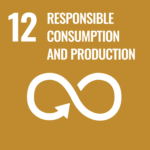
Goal 12: Responsible consumption and production
Since 2018, Dr. Sohee M. Kim, Assistant Professor at UEM has been participated as a guest lecturer in the capacity building & training programs and student workshop on “Low-carbon Integrated Solid Wastes Management and Circular Economy”, organized and funded by United Nations Institute for Training and Research (UNITAR), Green Technology...
Read MoreBased on the request from Prefectural University of Hiroshima, AIT acts as a focal point in Thailand for this trilateral civic engagement project to address the ocean plastic pollution problem. Annually, eight million metric tons of plastic waste is discharged into the oceanic zone, causing serious damage to fisheries and...
Read More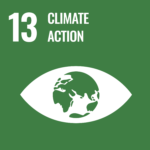
Goal 13: Climate action
This project is designed to train university lecturers, NGOs, and government officials from ASEAN member states on identifying the low-carbon business development opportunities created by forestry climate change project. Trainers were from Japan, ASEAN, and AIT. Training was held in Siem Reap in 16 – 23 March 2019 (3 days...
Read MoreThe project aims to overview the status, risks and trends of the flood disasters in the Mueang District as a case to develop a system-based multi-disciplinary framework for local level risk assessment and recommend necessary future actions for decision-makers. The specific objectives of the project are; 1. To identify critical...
Read MoreSeveral Asian Countries are conducting a country-driven Technology Needs Assessment for Climate Change mitigation and adaptation following specific methodology to come up with sector/technologies prioritization to deploy, identification of barriers, and technology action plan for short/medium/long term. AIT is the regional center to provide all technical guidance related to processes...
Read MoreThe project was initiated based on the request from the Climate Technology Centre and Network (CTCN) which is the operational arm of the United Nations Framework Convention on Climate Change (UNFCCC) Technology Mechanism and hosted by the United Nations Environment Programme (UNEP) in collaboration with the United Nations Industrial Development...
Read MoreThis is project is a research collaboration project between Lund University in NRM of SERD, AIT in Thailand and the Royal University of Agriculture. Named FRAWASA, this project is aimed at identifying land cover change in Cambodia, assessing land availability for forest restoration and climate-smart agriculture. It suggests policy interventions...
Read MoreThe Living Deltas Research Hub is funded for five years (2019-2024) and operates across four delta systems – Red River, Mekong deltas in Vietnam; the Ganges-Brahmaputra-Meghna system in Bangladesh and India. We call these socio-ecological systems. The Living Deltas Hub’s AIM is to tackle the problem of delta degradation in...
Read MoreThe project aimed at spatial and policy assessment on the future vulnerability to flood hazards in the context of urban growth for Lower Mekong region. Activities performed include: 1) development and dissemination of a flood risk assessment system combined with open-source global-scale geospatial and socioeconomic datasets on a cloud-based platform;...
Read MoreThe research focuses on gender mainstreaming in the nexus of climate change, land use, and informal livelihoods in Himalayan cities. Expected activities include: 1) survey and mapping to examine how women in informal settlements use the urban spaces for their livelihoods and what the impacts of climate change on their...
Read More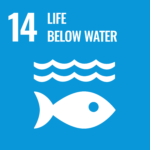
Goal 14: Life below water
There is a large demographic change in fishing communities in Asia – either because of aging or because of out-migration. The study compared the situation in Thailand (aging society) and Cambodia (out-migration) fishing communities, and analyzed what has been the impact of demographic changes to fishing occupation, and how fishers...
Read MoreThere are many young migrants from Cambodia to Thailand, who migrant alone or with their family members. The study explored the opportunity cost of such decision to migrate and the advantage that they might get by migrating. The study showed the struggle that young women migrants face to balance their...
Read MoreThe project studied migration in fishing communities in Cambodia, India and Sri Lanka. It explored how migration is used as a strategy to manage diminishing fishing resources and the deprivation that fishers are facing vis a vis large players in fishing. In Cambodia, it demonstrated how women play a crucial...
Read MoreBased on the request from Prefectural University of Hiroshima, AIT acts as a focal point in Thailand for this trilateral civic engagement project to address the ocean plastic pollution problem. Annually, eight million metric tons of plastic waste is discharged into the oceanic zone, causing serious damage to fisheries and...
Read MoreThe project aimed at spatial and policy assessment on the future vulnerability to flood hazards in the context of urban growth for Lower Mekong region. Activities performed include: 1) development and dissemination of a flood risk assessment system combined with open-source global-scale geospatial and socioeconomic datasets on a cloud-based platform;...
Read More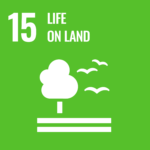
Goal 15: Life on land
This is project is a research collaboration project between Lund University in NRM of SERD, AIT in Thailand and the Royal University of Agriculture. Named FRAWASA, this project is aimed at identifying land cover change in Cambodia, assessing land availability for forest restoration and climate-smart agriculture. It suggests policy interventions...
Read MoreThis project is designed to train university lecturers, NGOs, and government officials from ASEAN member states on identifying the low-carbon business development opportunities created by forestry climate change project. Trainers were from Japan, ASEAN, and AIT. Training was held in Siem Reap in 16 – 23 March 2019 (3 days...
Read MoreThousands of species are threatened globally with extinction, there has been a swift decline in biodiversity and ecosystem resilience and people are being kept in poverty as trade in wildlife and agricultural commodities from low and middle-income countries has rapidly increased. The Trade Hub includes economists, trade modellers, political scientists,...
Read MoreThe study analyzed the impact of rubber plantation in Northern Laos, Myanmar and Cambodia. It showed how different farmers are impacted and adjust in different ways, and often times, the burden of adjustment falls on women. Keywords rubber, Laos, Myanmar, Cambodia, gender
Read MoreThe research focuses on gender mainstreaming in the nexus of climate change, land use, and informal livelihoods in Himalayan cities. Expected activities include: 1) survey and mapping to examine how women in informal settlements use the urban spaces for their livelihoods and what the impacts of climate change on their...
Read MoreThe aim of the project is to assess the extent and forms of women’s participation in the political sphere in Myanmar, and explore barriers and enabling factors. We define participation beyond just actions that influence or support governments to taking part in collective decision-making in a broad sense. Previous research...
Read MoreThe Living Deltas Research Hub is funded for five years (2019-2024) and operates across four delta systems – Red River, Mekong deltas in Vietnam; the Ganges-Brahmaputra-Meghna system in Bangladesh and India. We call these socio-ecological systems. The Living Deltas Hub’s AIM is to tackle the problem of delta degradation in...
Read MoreThe project aims to overview the status, risks and trends of the flood disasters in the Mueang District as a case to develop a system-based multi-disciplinary framework for local level risk assessment and recommend necessary future actions for decision-makers. The specific objectives of the project are; 1. To identify critical...
Read More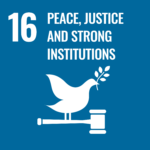
Goal 16: Peace, justice and strong institutions
The aim of the project is to assess the extent and forms of women’s participation in the political sphere in Myanmar, and explore barriers and enabling factors. We define participation beyond just actions that influence or support governments to taking part in collective decision-making in a broad sense. Previous research...
Read MoreThe study analyzed the impact of rubber plantation in Northern Laos, Myanmar and Cambodia. It showed how different farmers are impacted and adjust in different ways, and often times, the burden of adjustment falls on women. Keywords rubber, Laos, Myanmar, Cambodia, gender
Read MoreThere is a lack of comprehensive research on attitude toward LGBT people and challenges they face, making it difficult for advocates, development partners and policy makers to promote effective policies and make informed decisions. To address this the ‘Being LGBTI in Asia’ UNDP program, which is aimed at advancing the...
Read MoreThe International Symposium on “Disaster Resilience and Sustainable Development” is one of the initiatives of ProSPER.Net project “Disaster Resilience and Sustainable Development Education Network in Asia” lead by Asian Institute of Technology, Thailand along with the partner universities in the Asia Pacific Region. The symposium will also provide an opportunity...
Read MoreThe Sindh Resilience Project, with the Sindh Provincial Disaster Management Authority (PDMA), signed a contract with the Asian Institute of Technology (AIT) on 28th June 2019, to execute a project “Capacity Building through Curriculum Development, Conduct Various Training programs and workshops for Provincial and District Disaster Management Authorities and Line...
Read MoreThis research project, using both qualitative and quantitative data collection methods, focused on women’s economic empowerment and social protection projects in four Mekong countries: Cambodia, Lao PDR, Myanmar and Vietnam. It involved an exploration of the gaps between the level of policy makers and intended beneficiaries in terms of their...
Read MoreThe Training Program on Disaster Risk Management and Governance aims to increase efficiency in disaster preparedness, mitigation and management to minimize the loss of life and properties in disaster or emergency situations. During the training workshop we will deliver case studies and best practices from international perspectives through the international...
Read MoreThe study reviewed the laws and regulations related to human trafficking and migration in Thailand and Cambodia. It identified some limitations in laws itself, as well as in its implementation. Keywords human trafficking, migration, Thailand, Cambodia, laws
Read More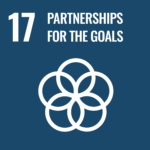
Goal 17: Partnerships for the Goals
This research project, using both qualitative and quantitative data collection methods, focused on women’s economic empowerment and social protection projects in four Mekong countries: Cambodia, Lao PDR, Myanmar and Vietnam. It involved an exploration of the gaps between the level of policy makers and intended beneficiaries in terms of their...
Read MoreThis project is designed to train university lecturers, NGOs, and government officials from ASEAN member states on identifying the low-carbon business development opportunities created by forestry climate change project. Trainers were from Japan, ASEAN, and AIT. Training was held in Siem Reap in 16 – 23 March 2019 (3 days...
Read MoreThe Living Deltas Research Hub is funded for five years (2019-2024) and operates across four delta systems – Red River, Mekong deltas in Vietnam; the Ganges-Brahmaputra-Meghna system in Bangladesh and India. We call these socio-ecological systems. The Living Deltas Hub’s AIM is to tackle the problem of delta degradation in...
Read MoreThis project contributes to capacity building of YUE for qualitative research. It consists of graduate education at AIT, curriculum development of gender and development at YUE, qualitative research training workshop and small research projects, and joint supervision of students. As the result of the project, YUE now runs a gender...
Read MoreThe project aims to overview the status, risks and trends of the flood disasters in the Mueang District as a case to develop a system-based multi-disciplinary framework for local level risk assessment and recommend necessary future actions for decision-makers. The specific objectives of the project are; 1. To identify critical...
Read MoreDisaster Resilience and Business Continuity Planning at the various level for Advocating Safety of Public and Private Hospitals, Schools, and other Critical Structures are one of the key components for mainstreaming resilience and Disaster Risk Reduction in higher education. This workshop will contribute in exchange of knowledge and dialogues which...
Read MoreThe research project investigated the critical factors for educational continuity in the case of urban flooding in South and Southeast Asia. The research studied three countries – Bangladesh, Thailand, and Vietnam – which are recurrently affected by floods. The research specifically aimed at extrapolating the main blockers and enablers of educational continuity. Towards this goal, primary, middle...
Read MoreSince 2018, Dr. Sohee M. Kim, Assistant Professor at UEM has been participated as a guest lecturer in the capacity building & training programs and student workshop on “Low-carbon Integrated Solid Wastes Management and Circular Economy”, organized and funded by United Nations Institute for Training and Research (UNITAR), Green Technology...
Read MoreBased on the request from Prefectural University of Hiroshima, AIT acts as a focal point in Thailand for this trilateral civic engagement project to address the ocean plastic pollution problem. Annually, eight million metric tons of plastic waste is discharged into the oceanic zone, causing serious damage to fisheries and...
Read MoreThis is project is a research collaboration project between Lund University in NRM of SERD, AIT in Thailand and the Royal University of Agriculture. Named FRAWASA, this project is aimed at identifying land cover change in Cambodia, assessing land availability for forest restoration and climate-smart agriculture. It suggests policy interventions...
Read MoreTo update the curriculum of universities in line with SDG goal on quality of education with focus on issues related to sustainability. Keywords: Sustainability, education, textile education, training
Read MoreThe International Symposium on “Disaster Resilience and Sustainable Development” is one of the initiatives of ProSPER.Net project “Disaster Resilience and Sustainable Development Education Network in Asia” lead by Asian Institute of Technology, Thailand along with the partner universities in the Asia Pacific Region. The symposium will also provide an opportunity...
Read MoreThis project aims to establish a working group on Higher Education Institutions on Disaster Resilience and Sustainable Development under the ProSPER.Net umbrella. Its aim is to form a robust regional network with the collective capacity to lead initiatives that protect society from shocks to physical, socio-cultural, politico-economic and natural systems...
Read MoreThe Sindh Resilience Project, with the Sindh Provincial Disaster Management Authority (PDMA), signed a contract with the Asian Institute of Technology (AIT) on 28th June 2019, to execute a project “Capacity Building through Curriculum Development, Conduct Various Training programs and workshops for Provincial and District Disaster Management Authorities and Line...
Read MoreThe aim of the project is to assess the extent and forms of women’s participation in the political sphere in Myanmar, and explore barriers and enabling factors. We define participation beyond just actions that influence or support governments to taking part in collective decision-making in a broad sense. Previous research...
Read MoreContact Us
Leave your messages
